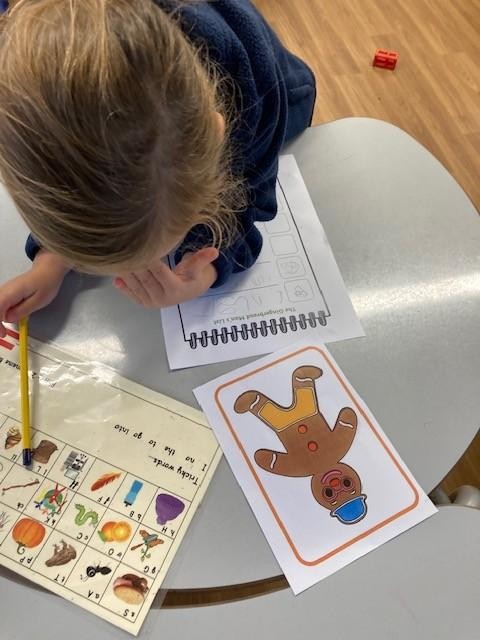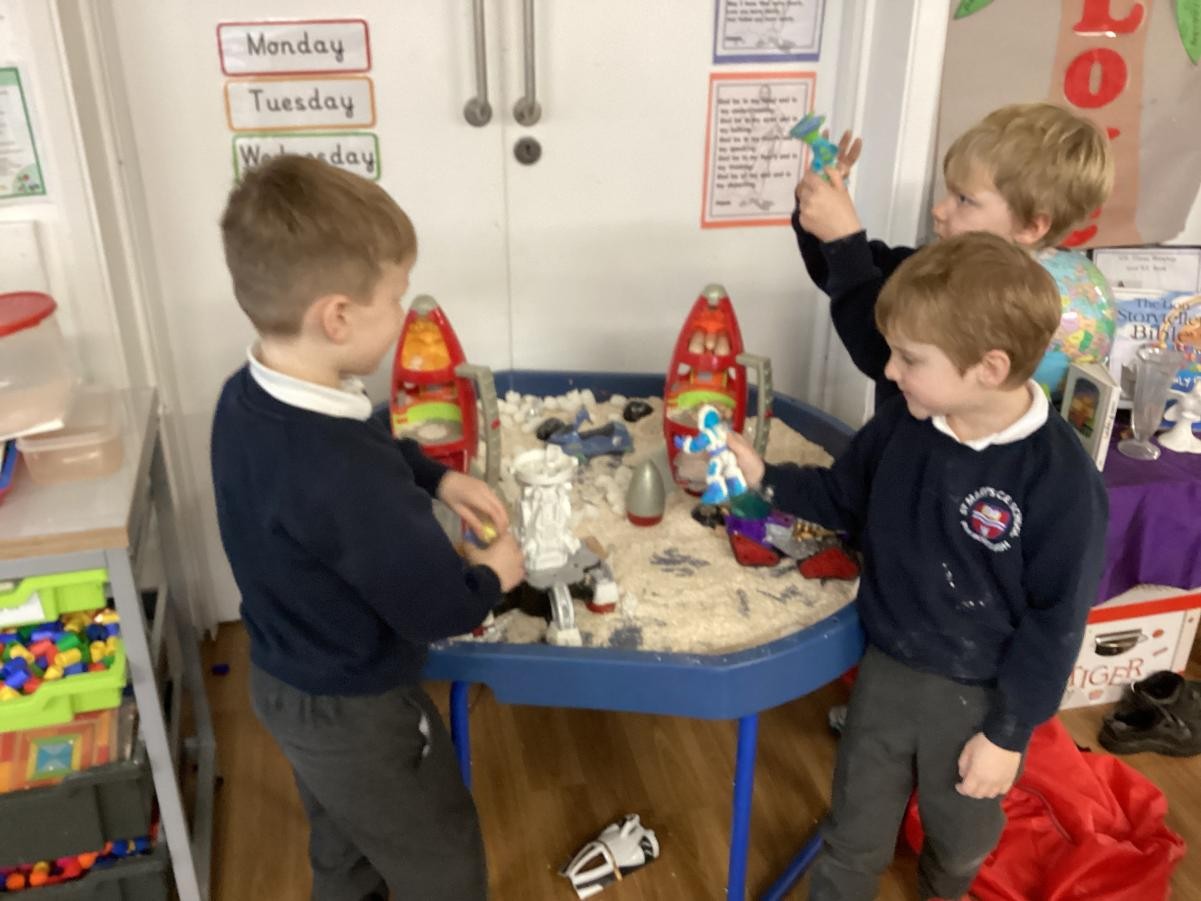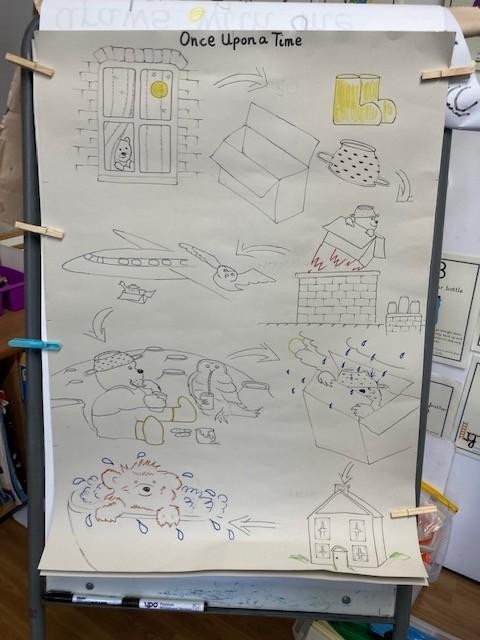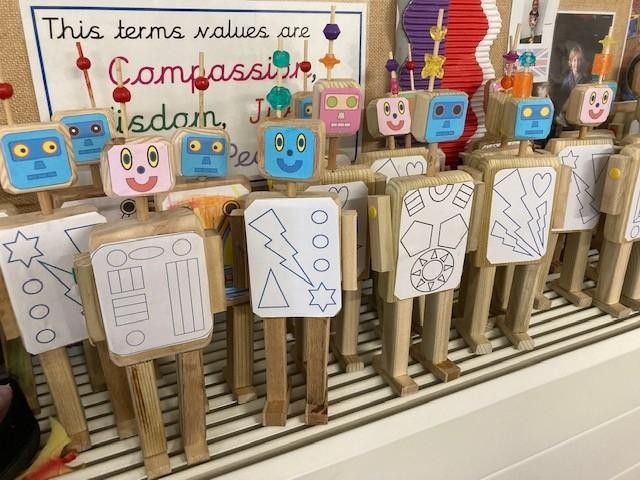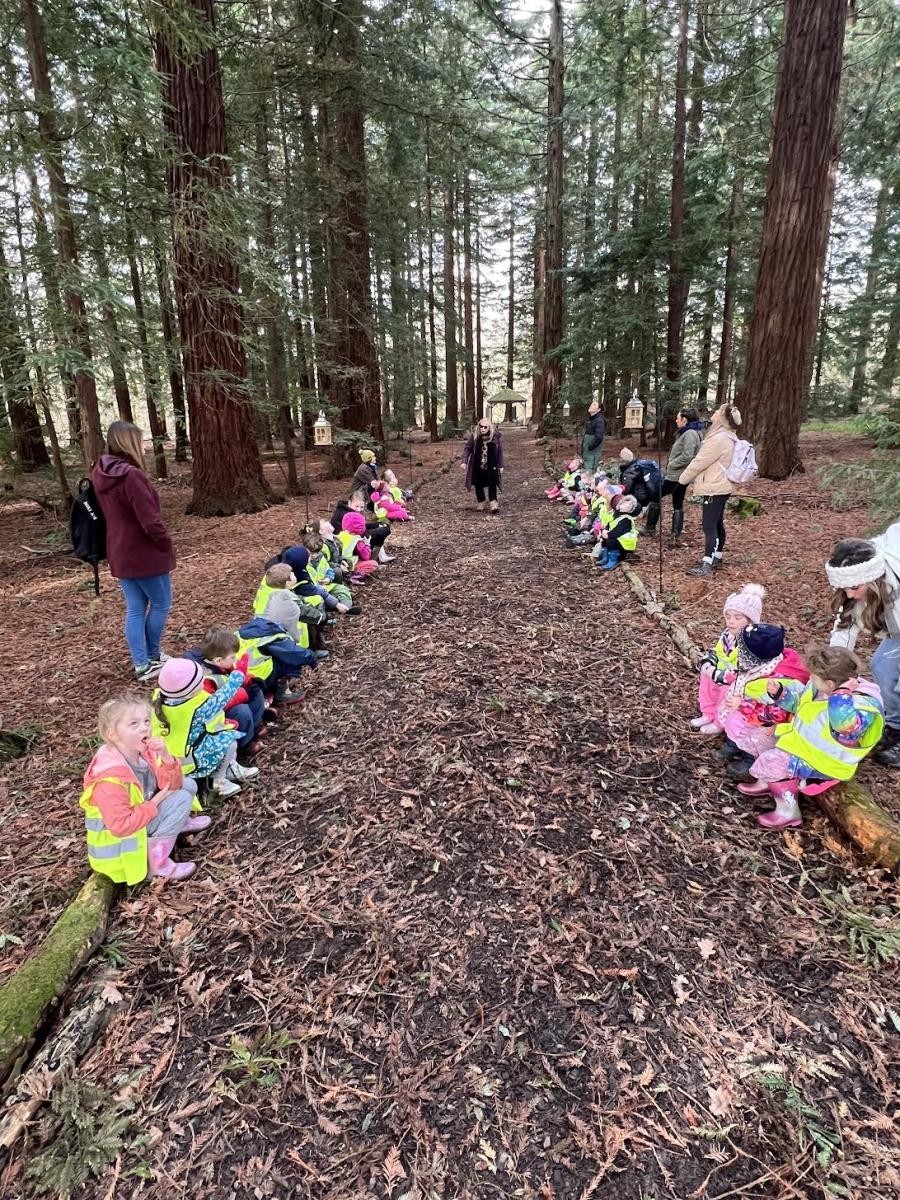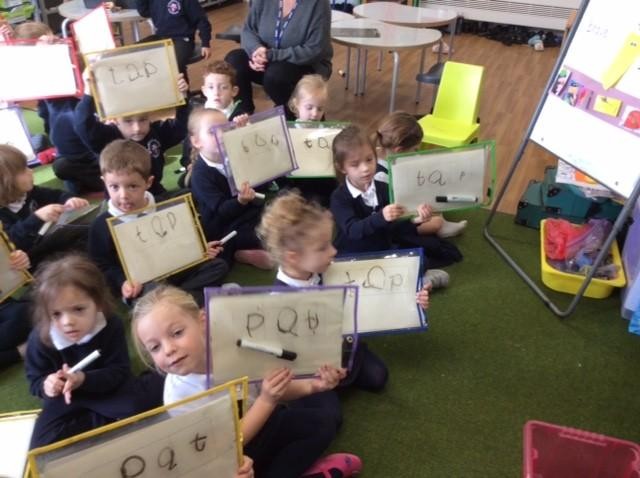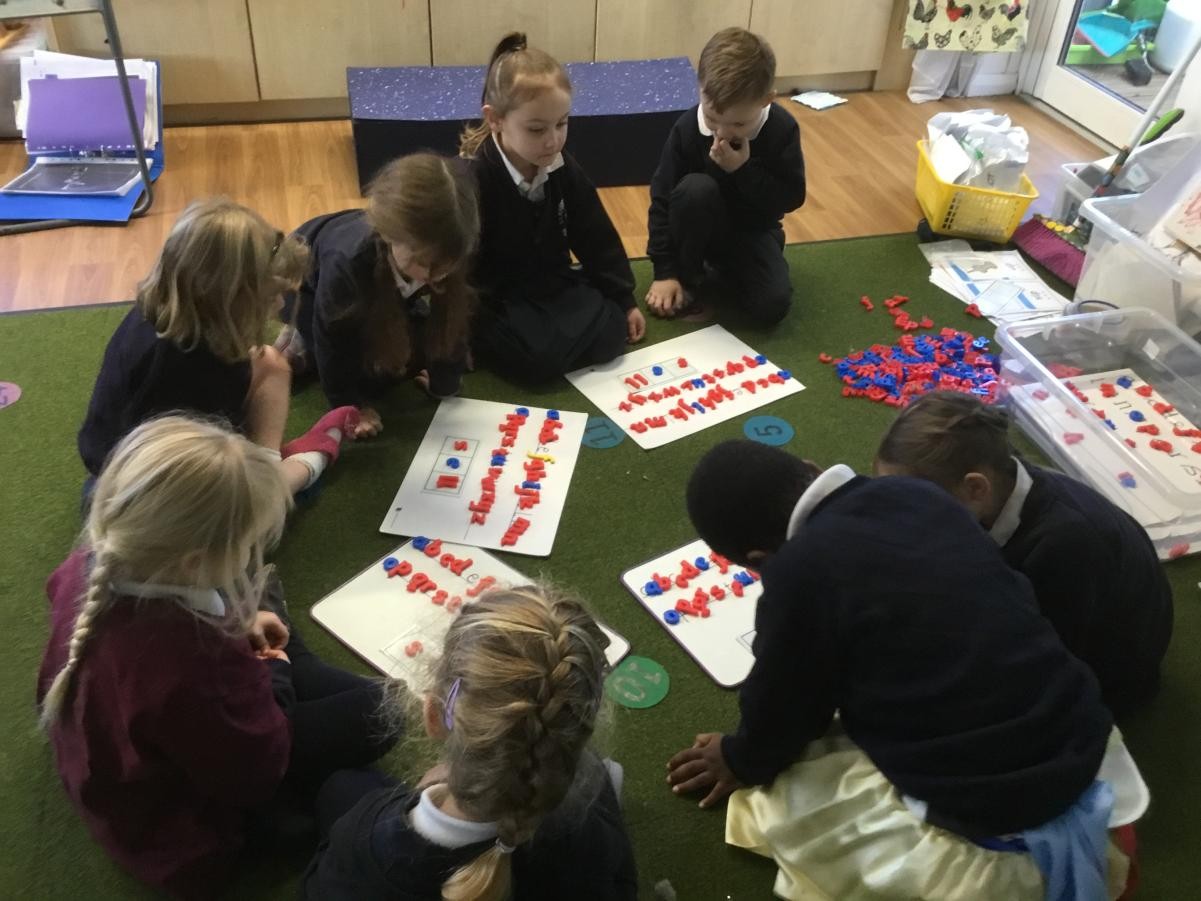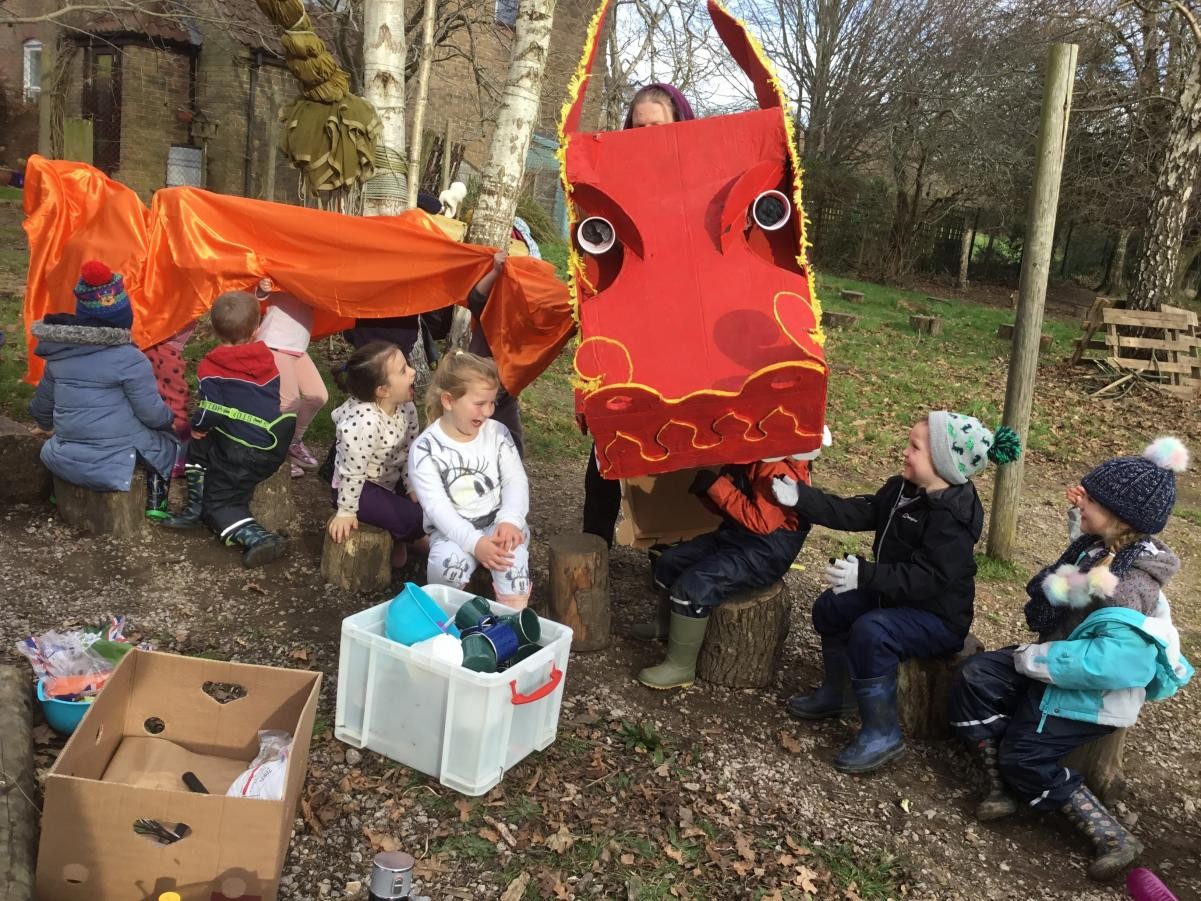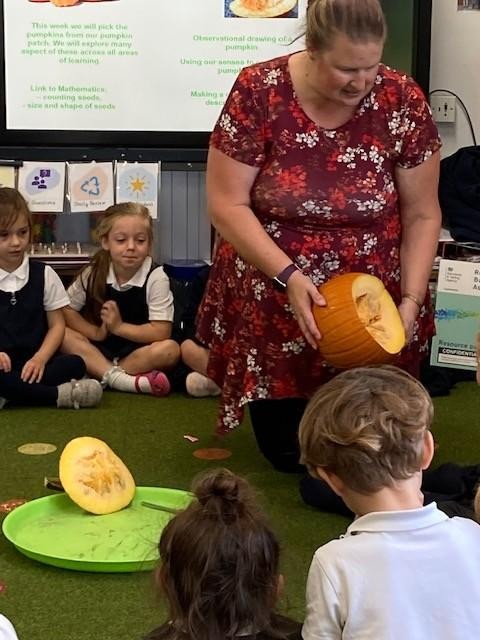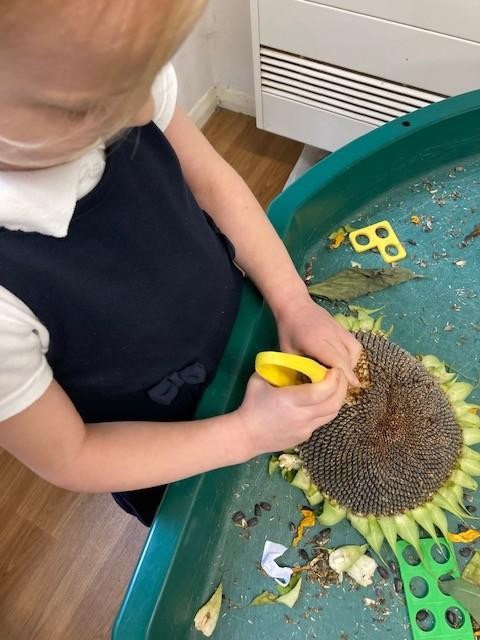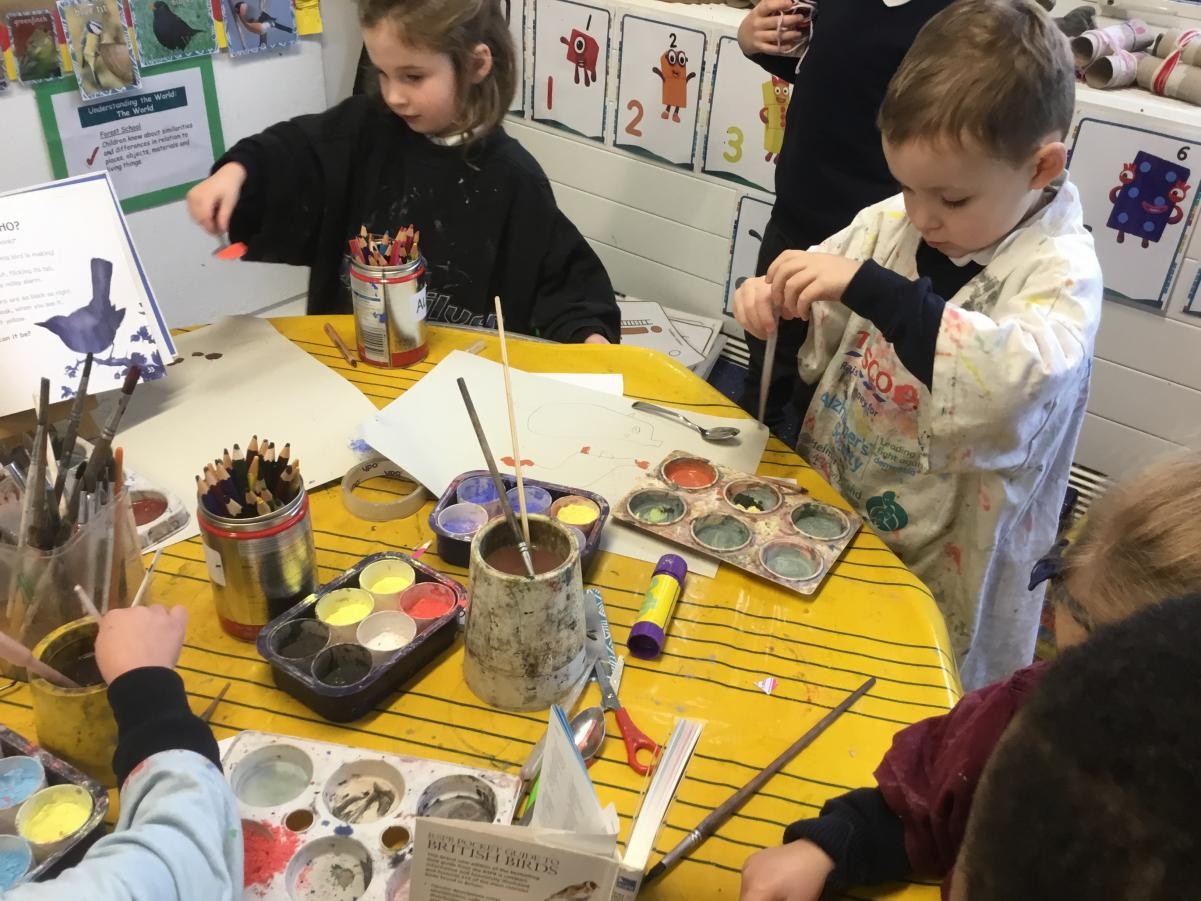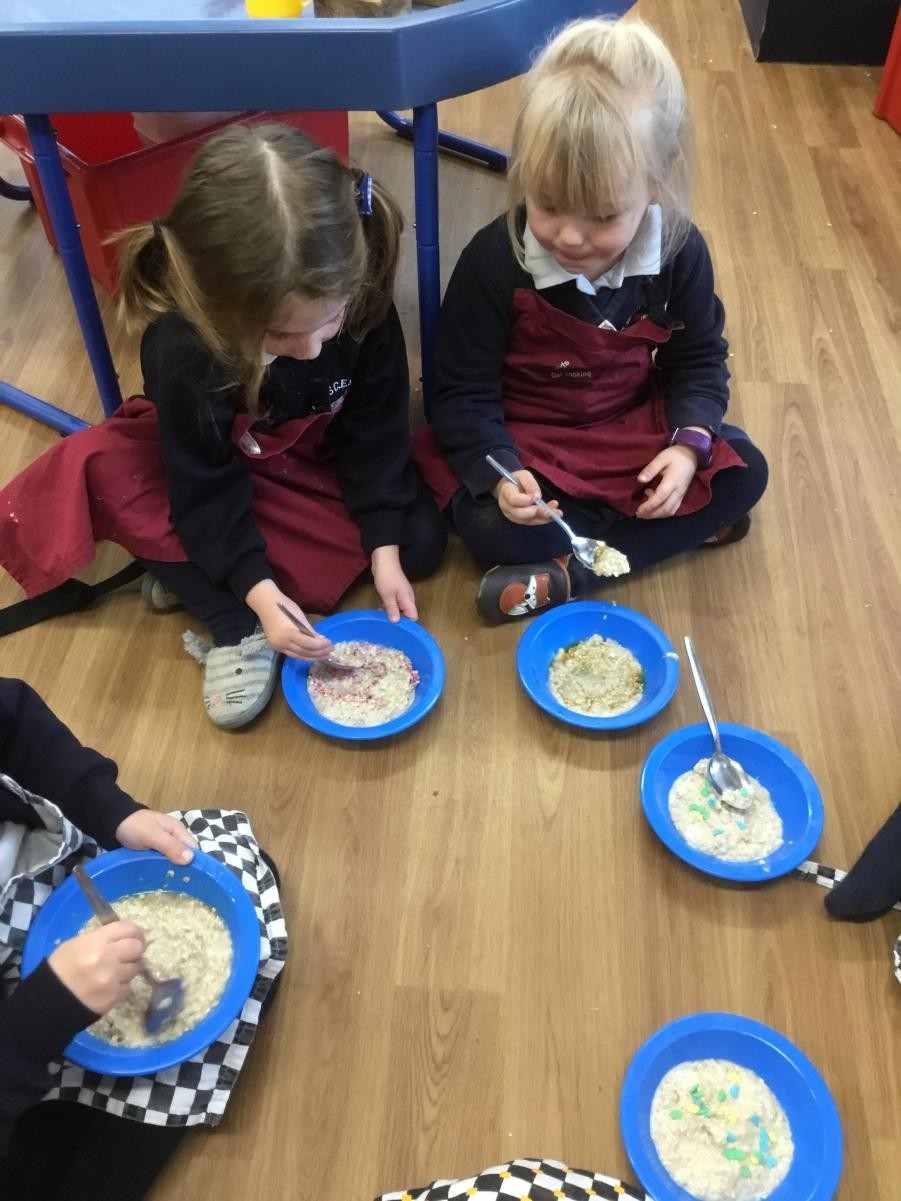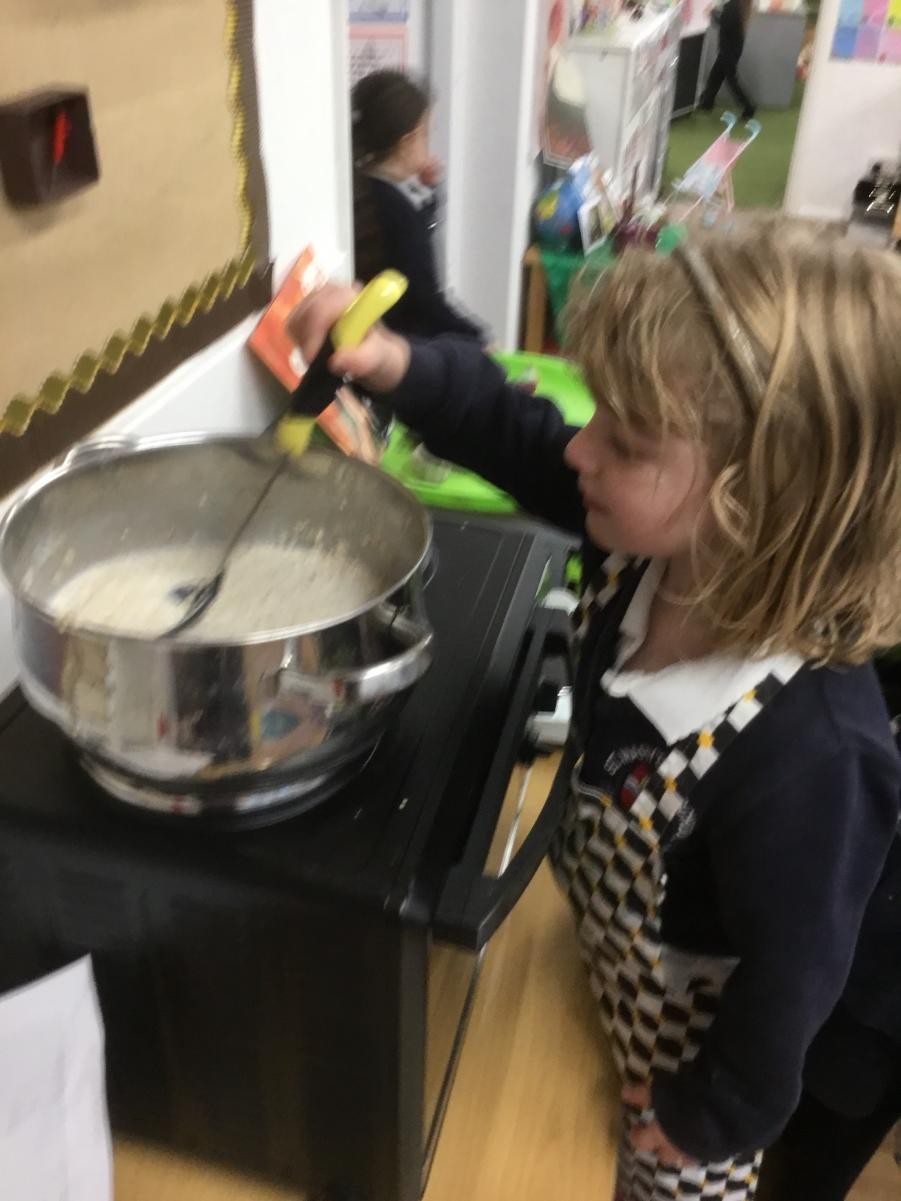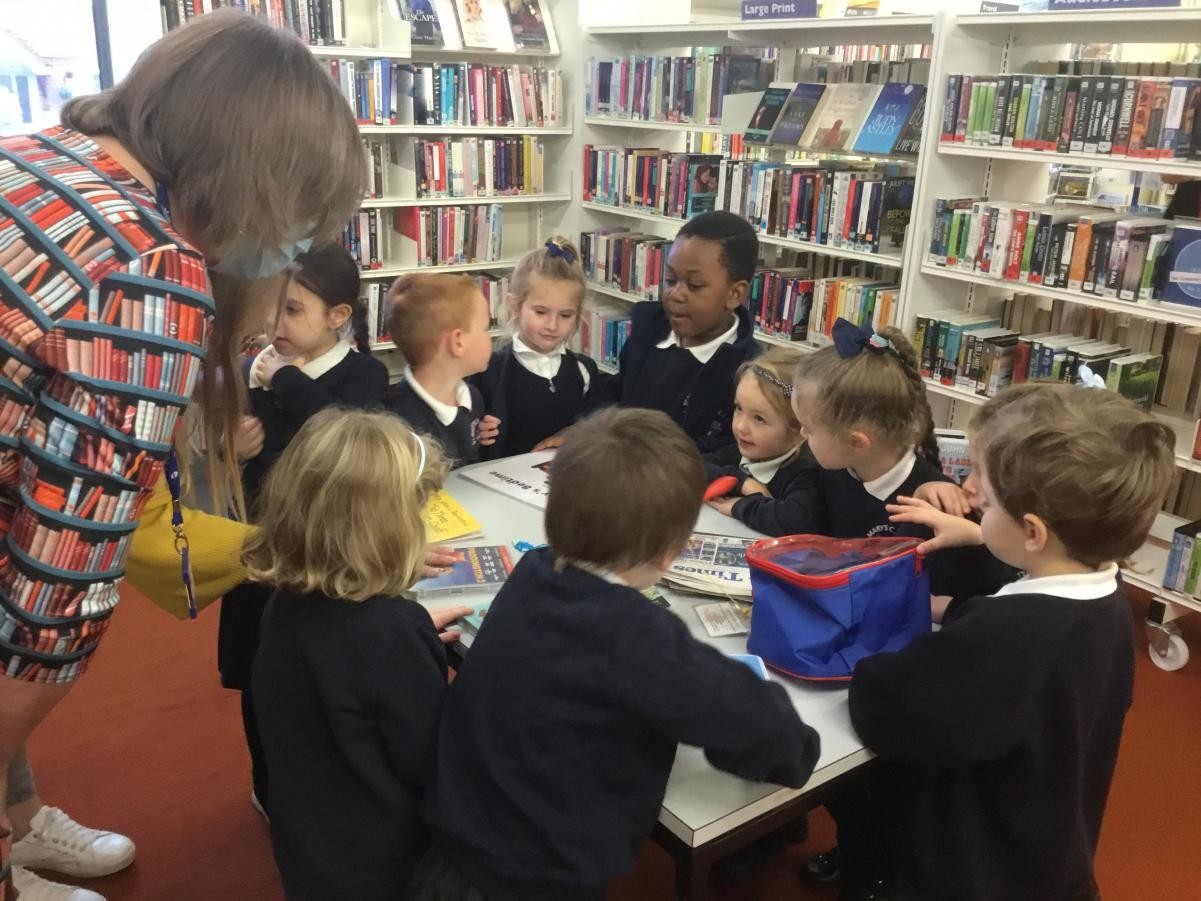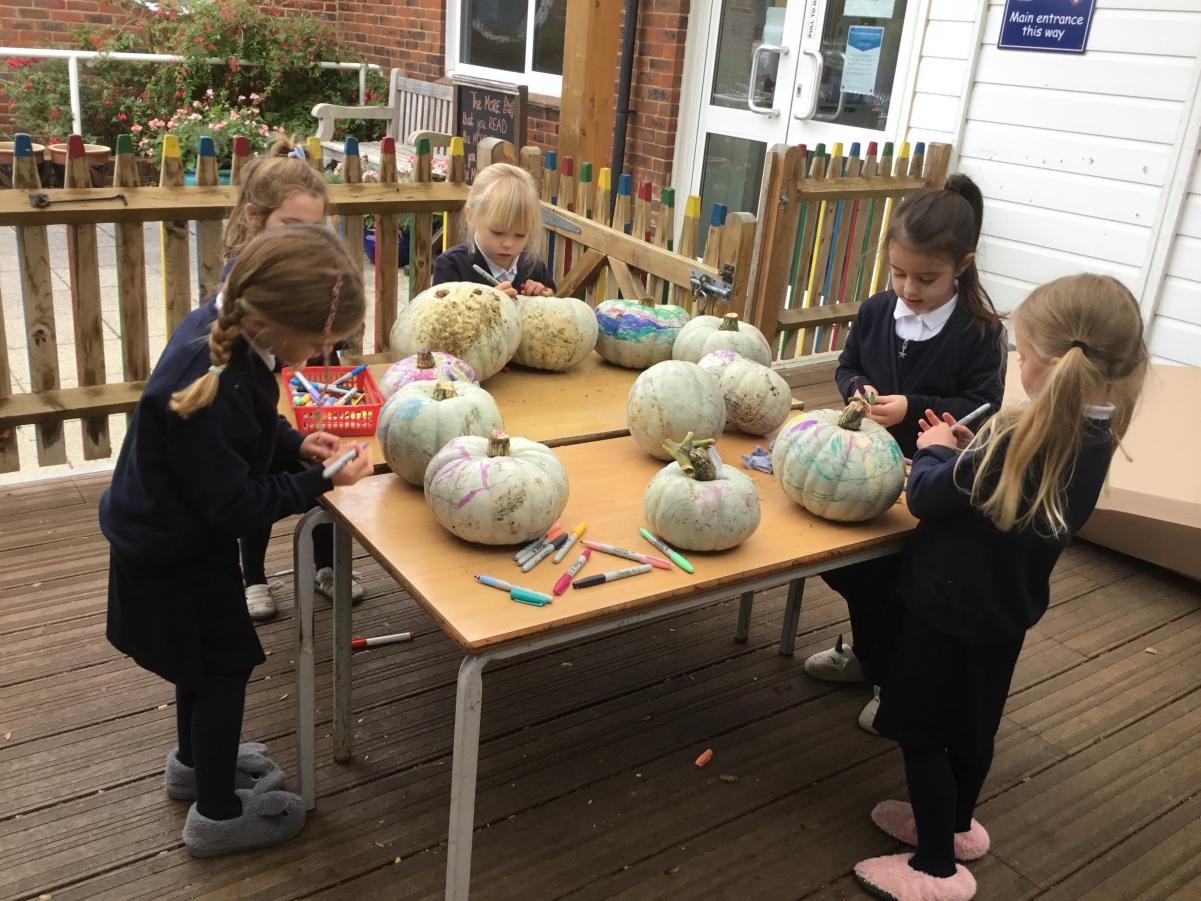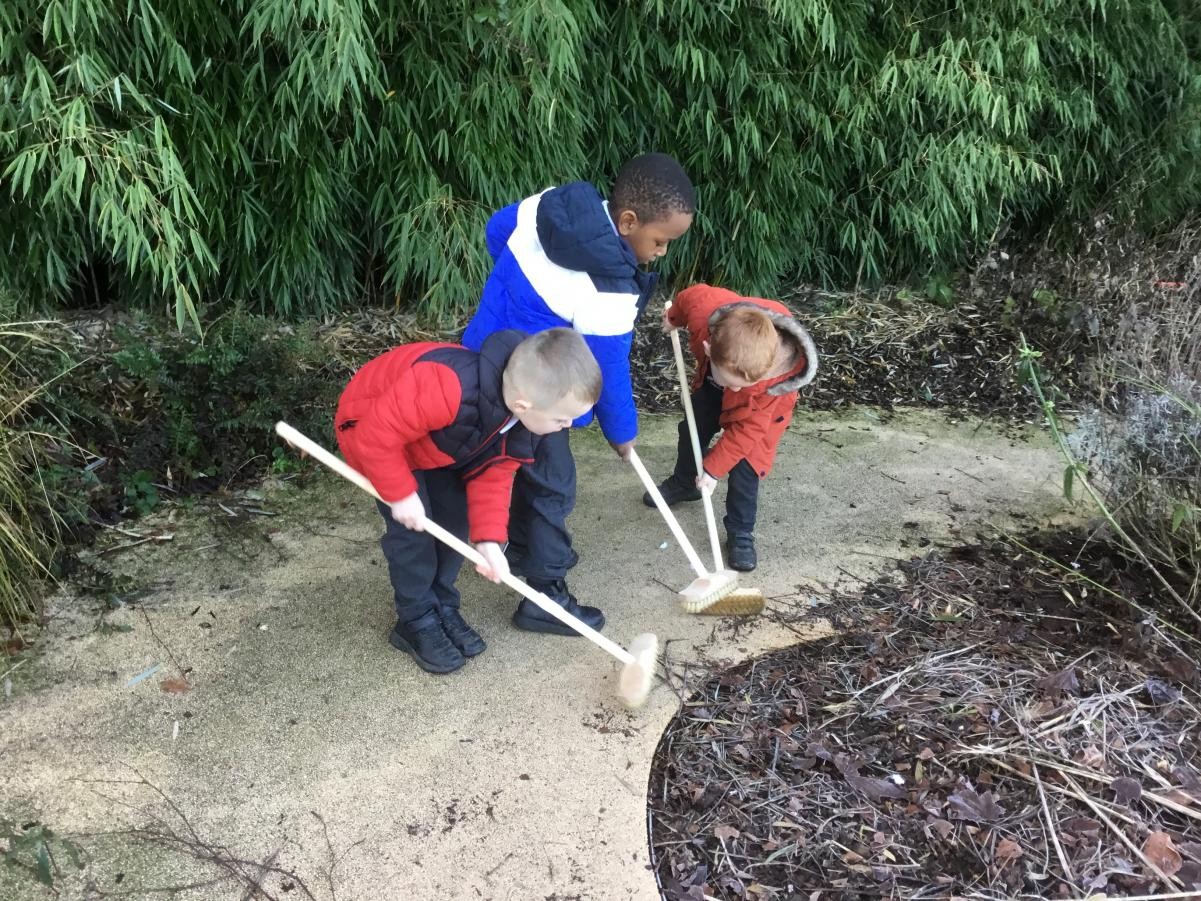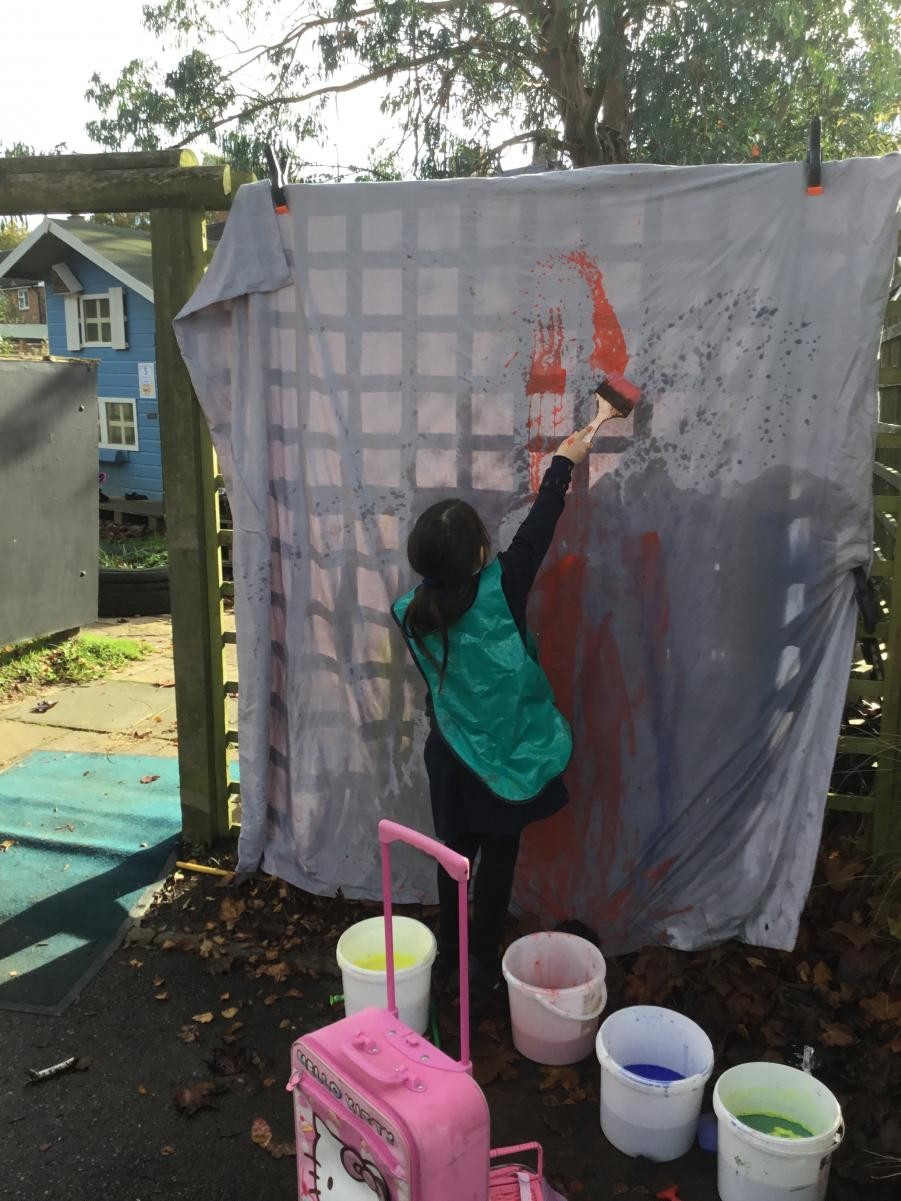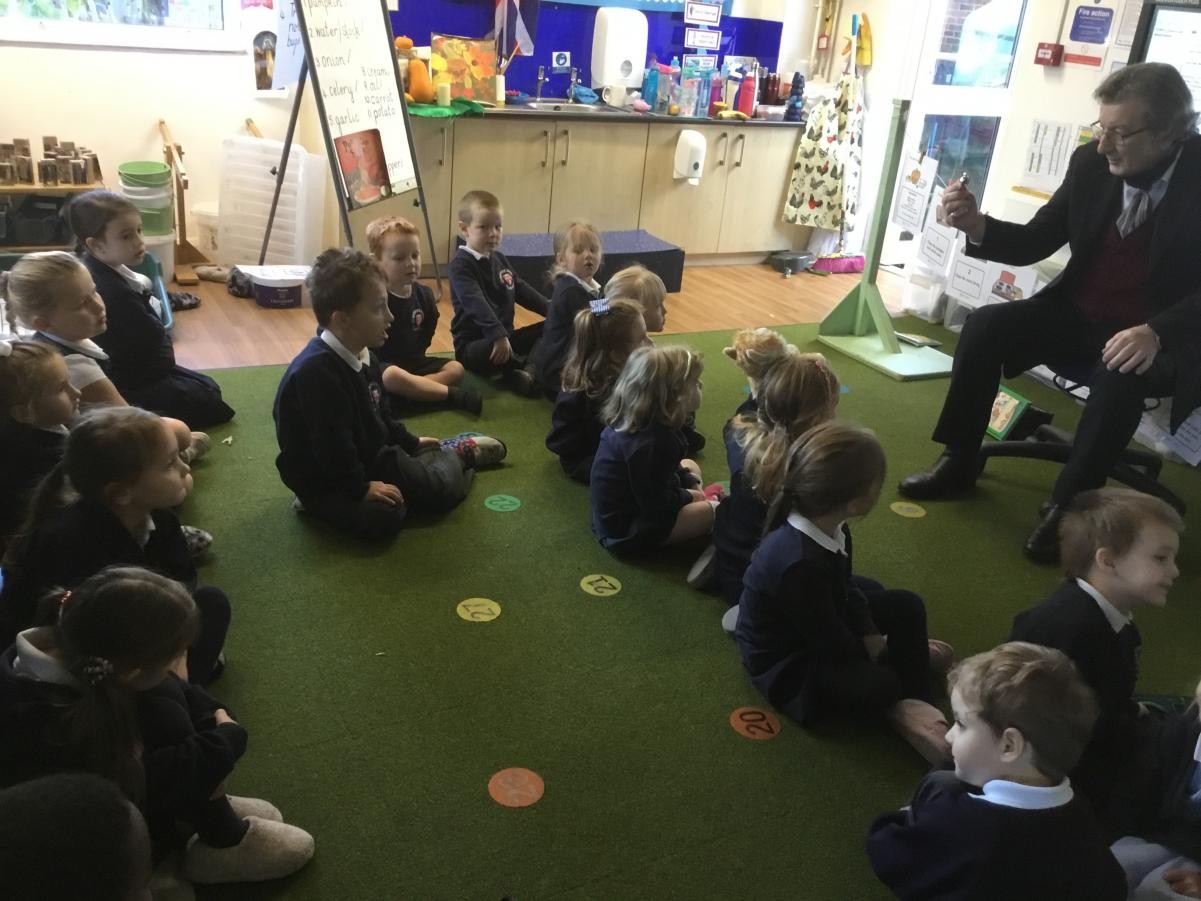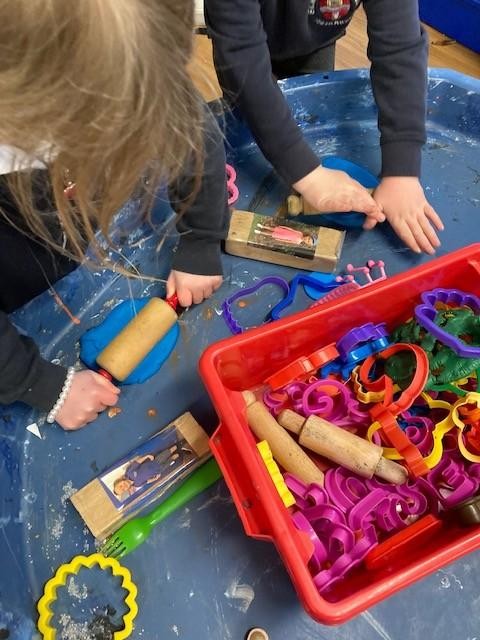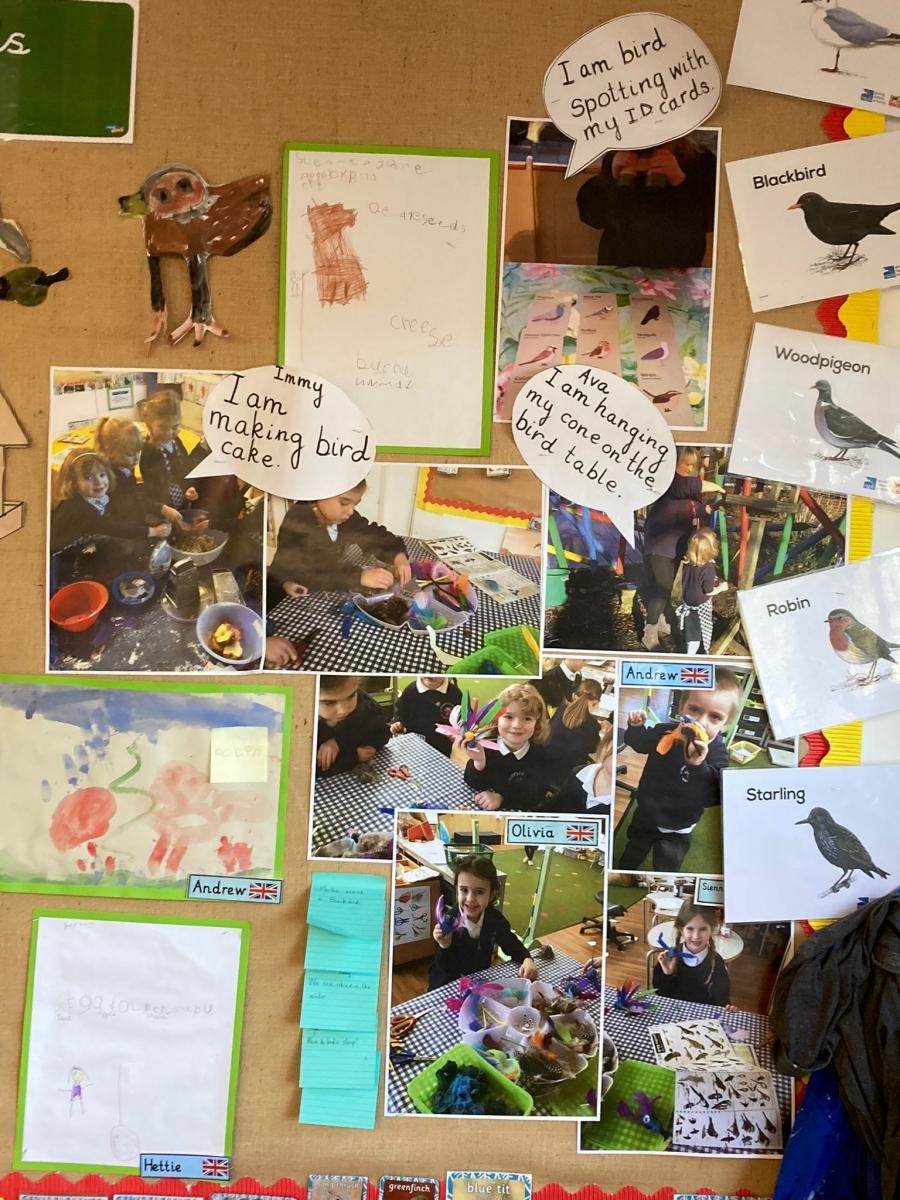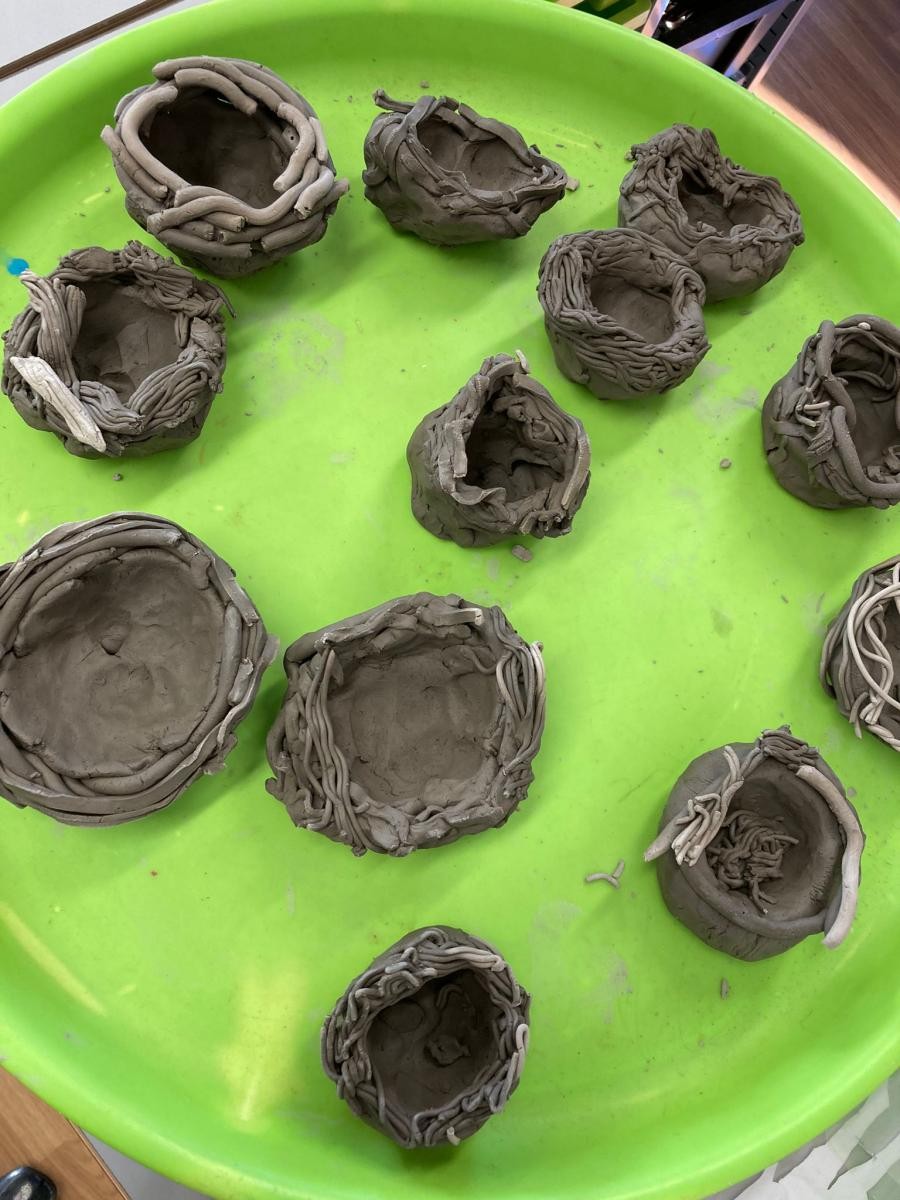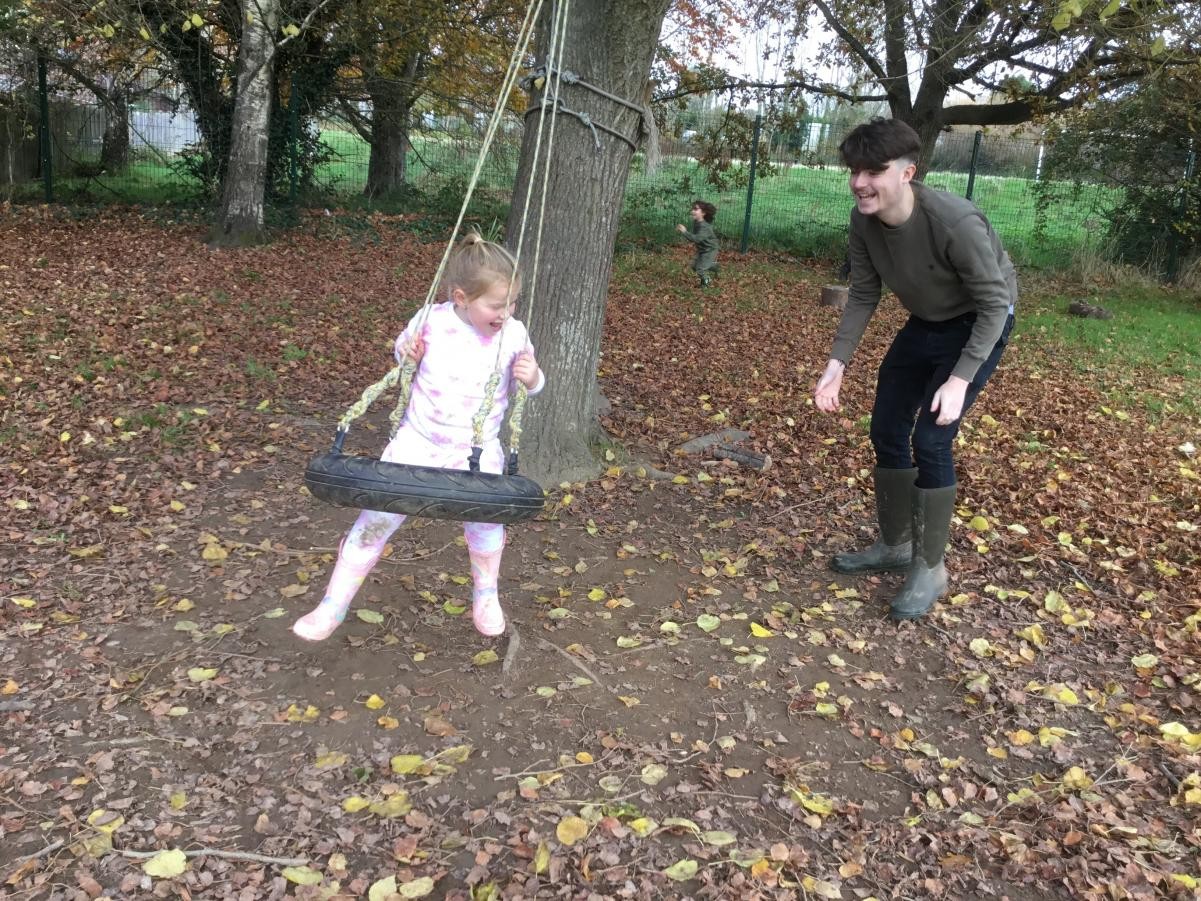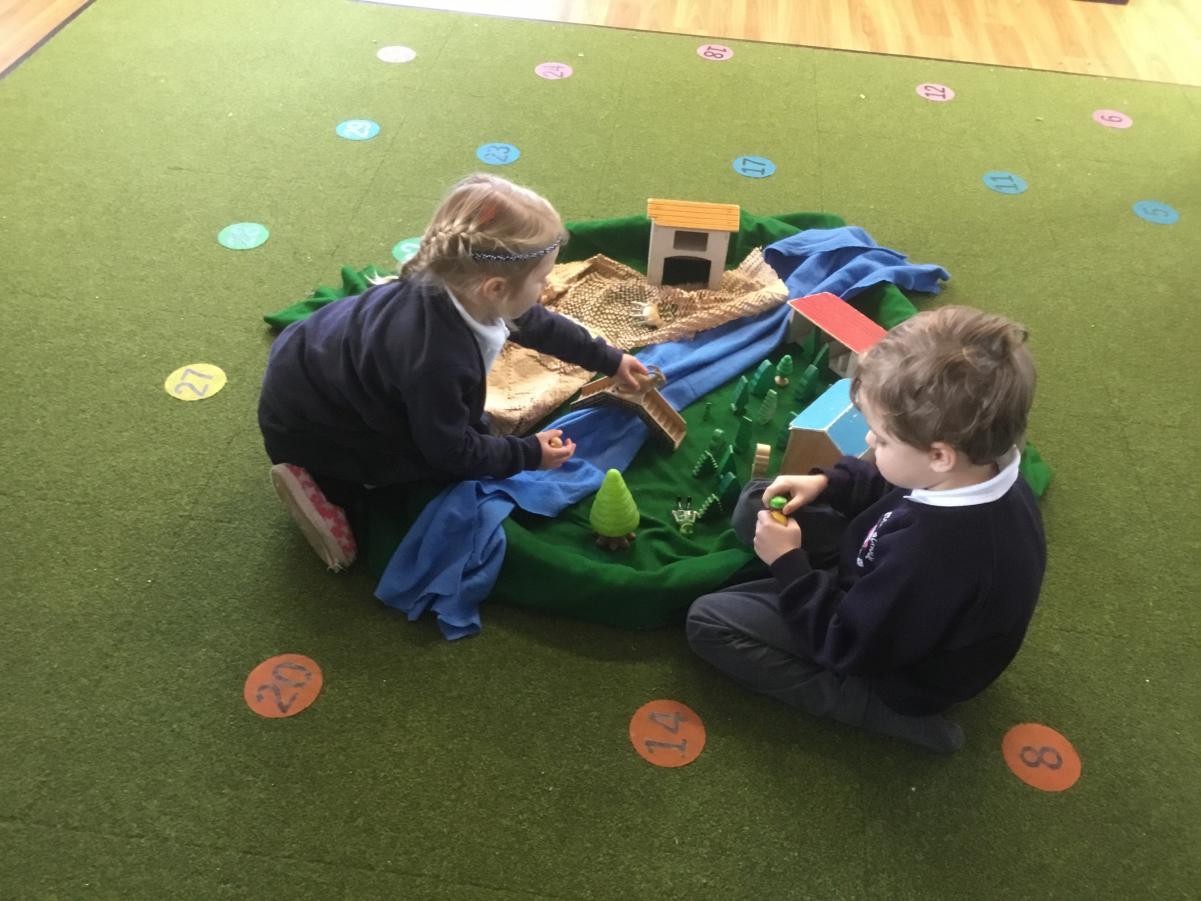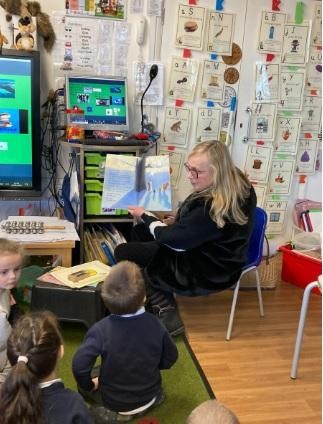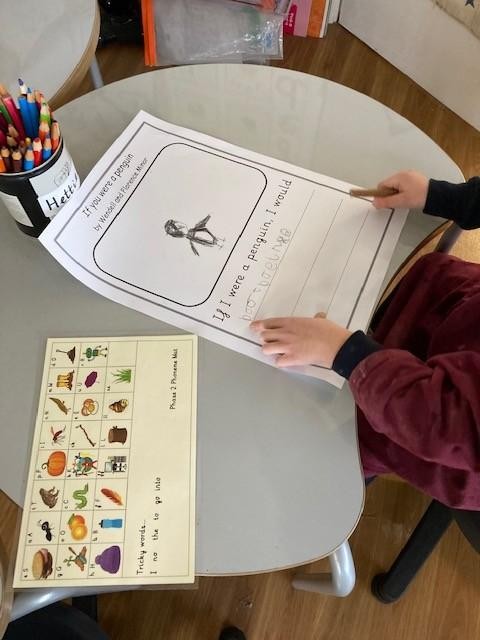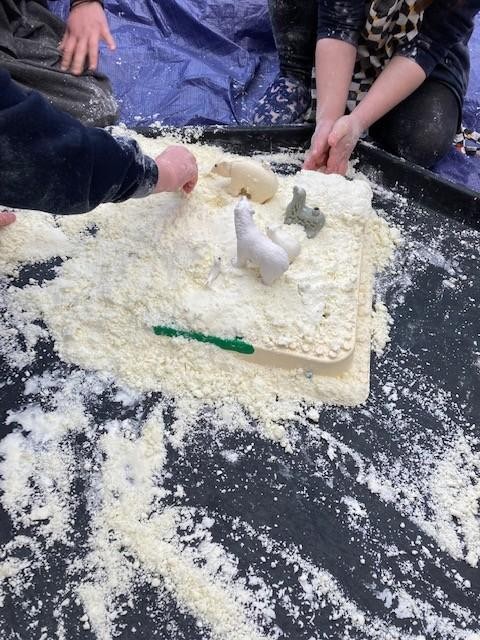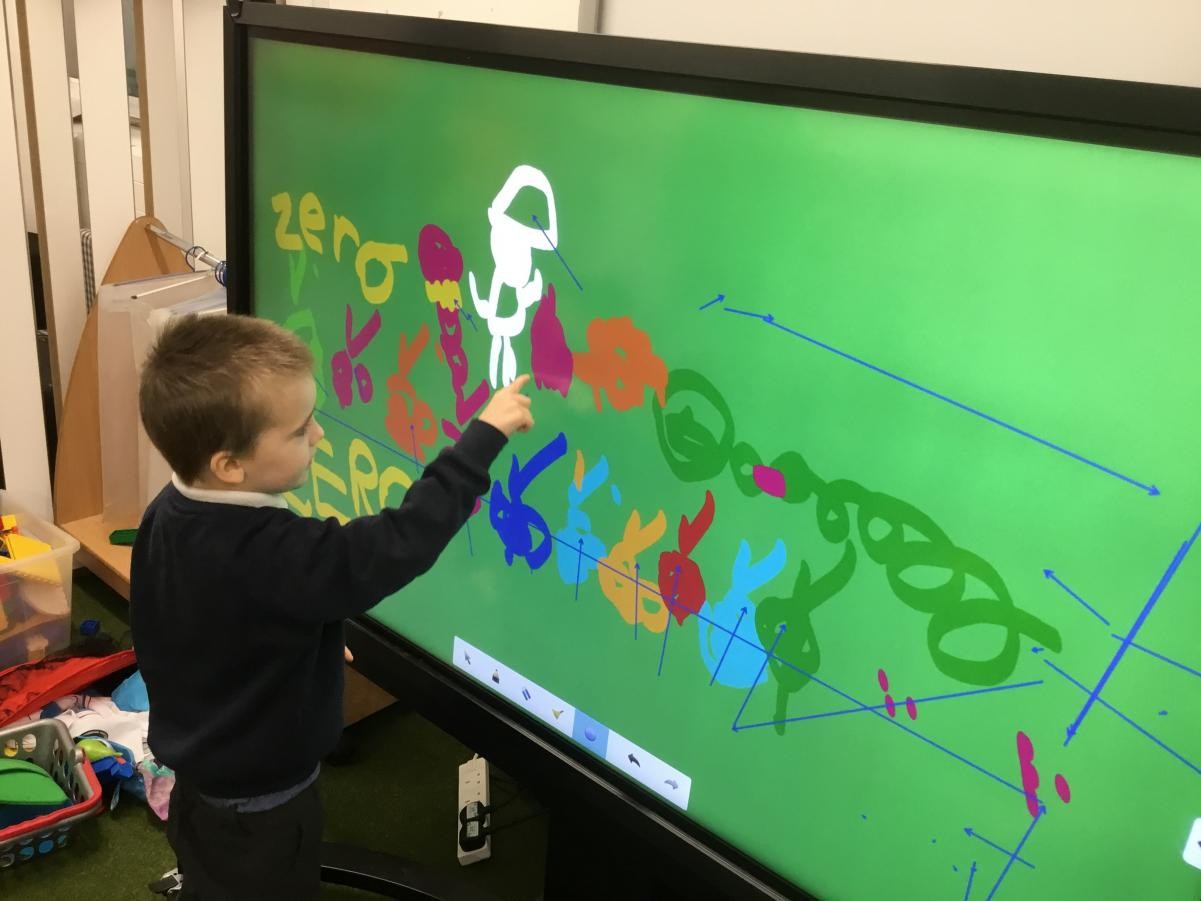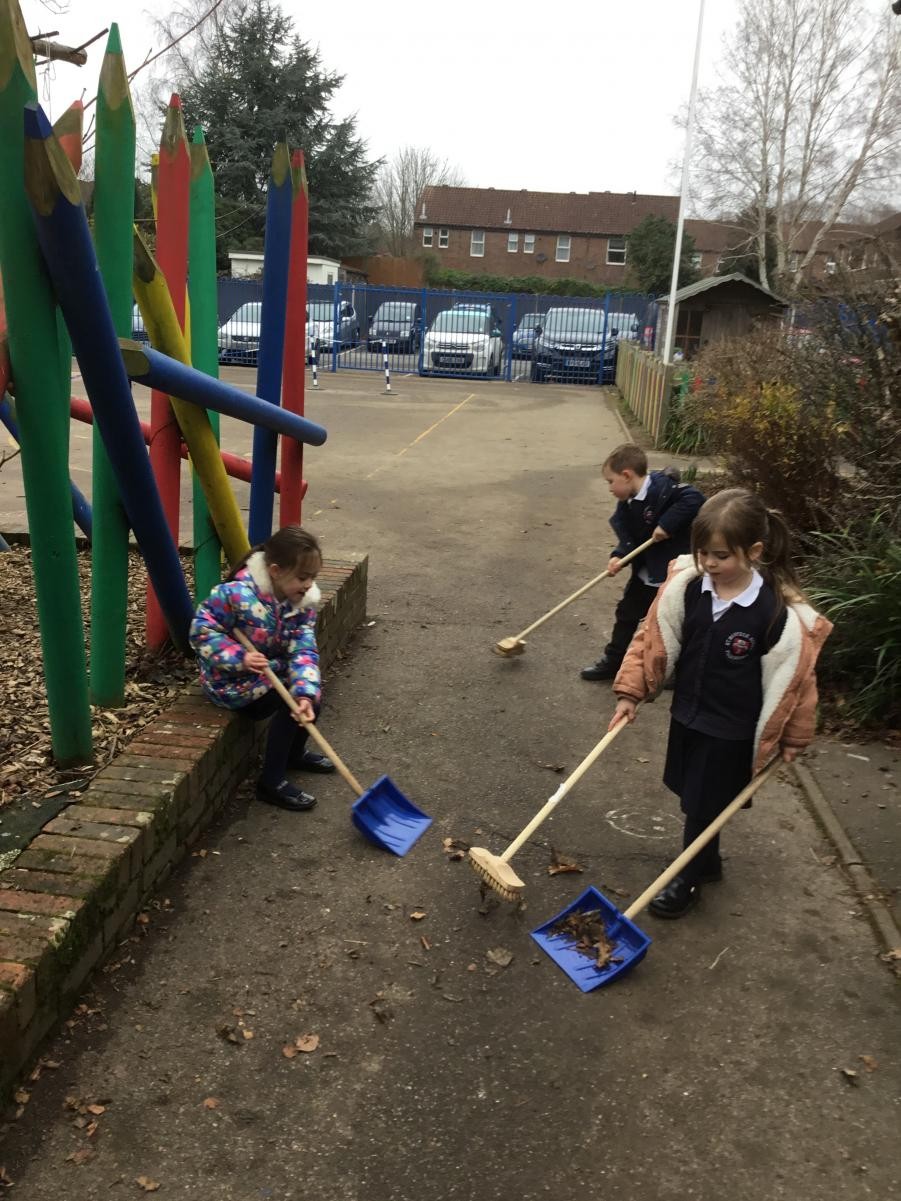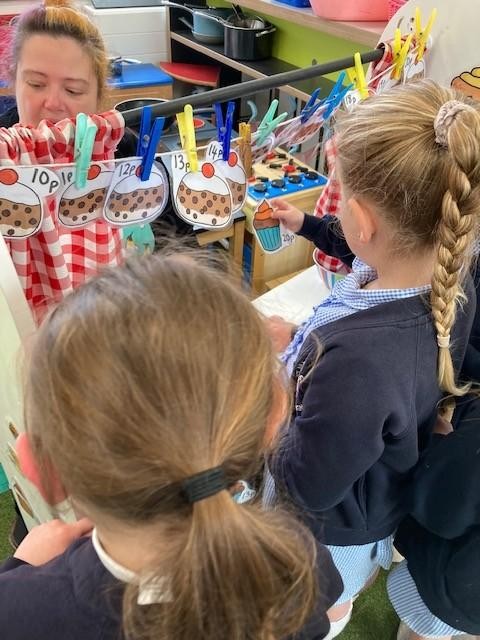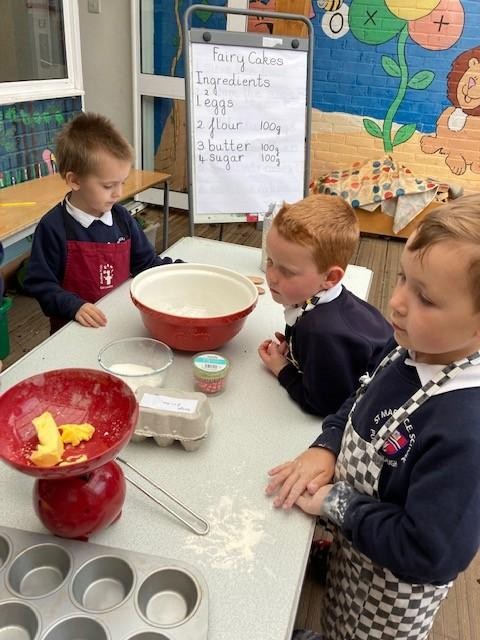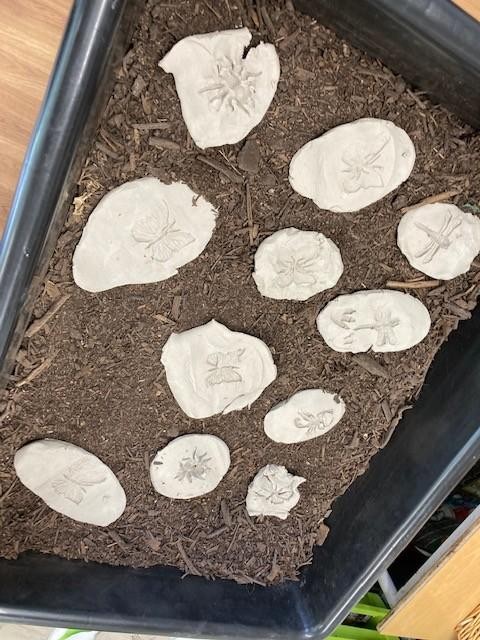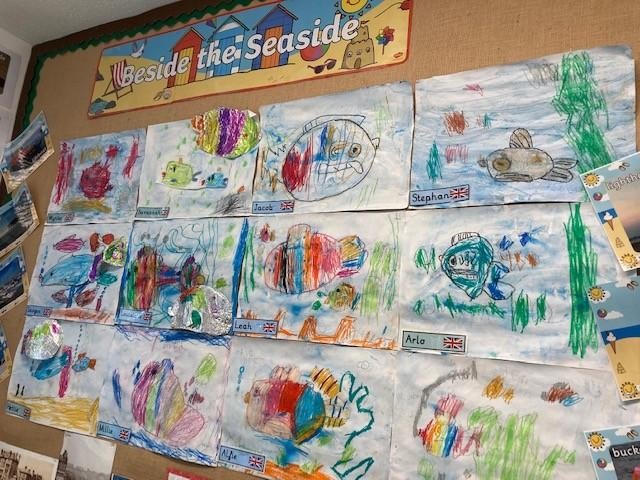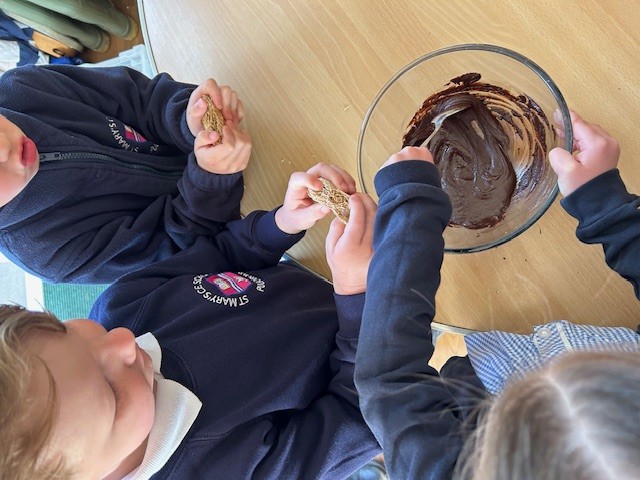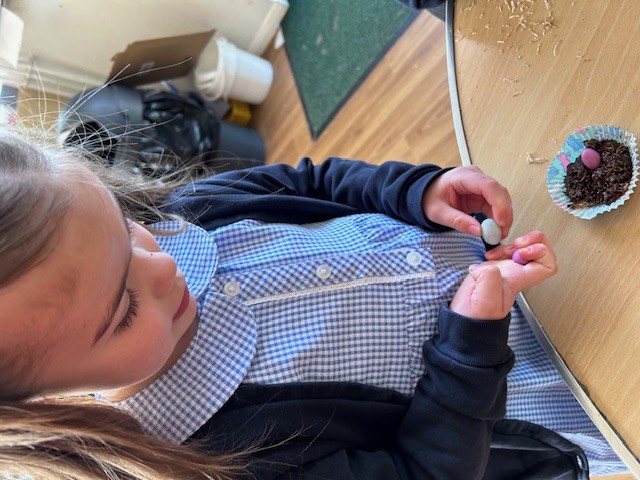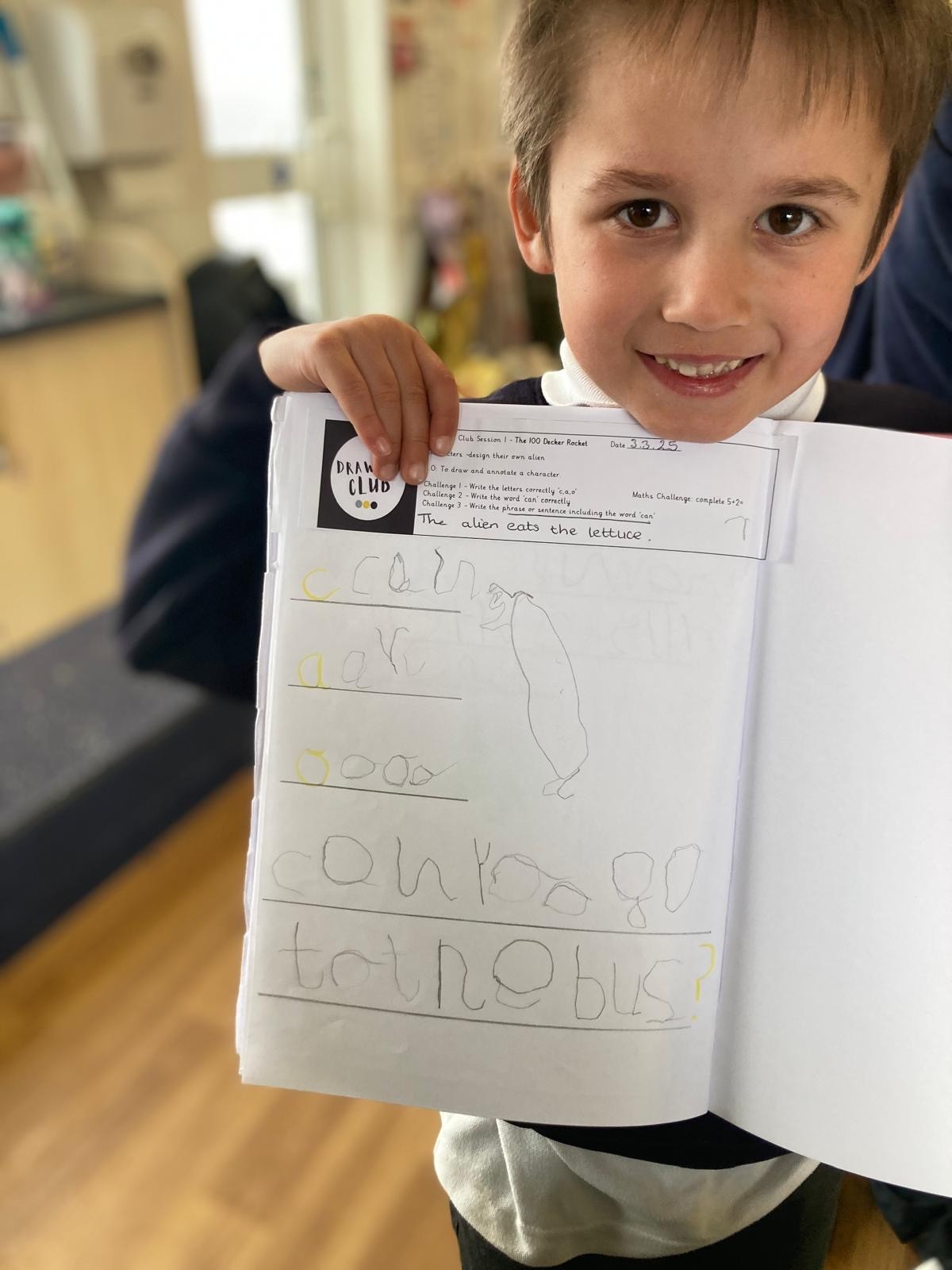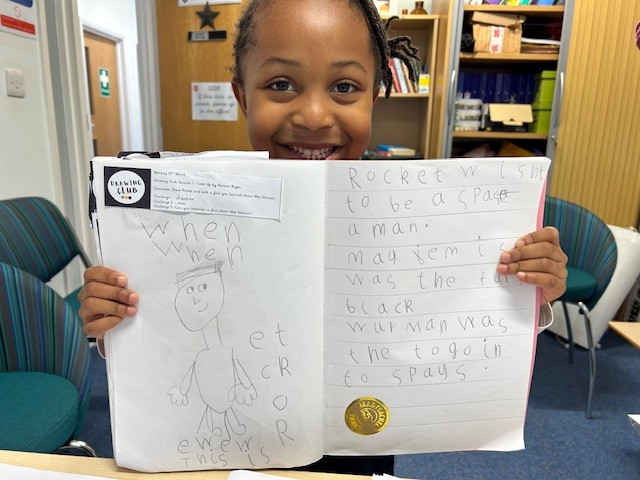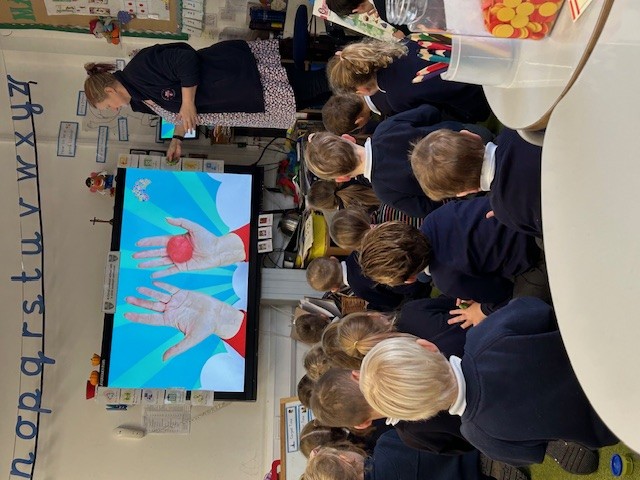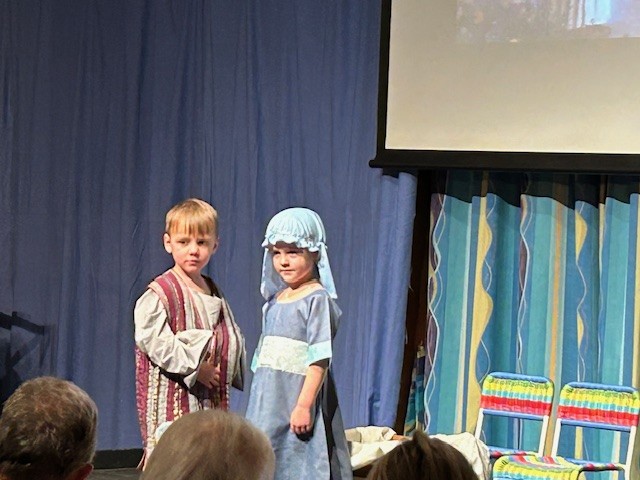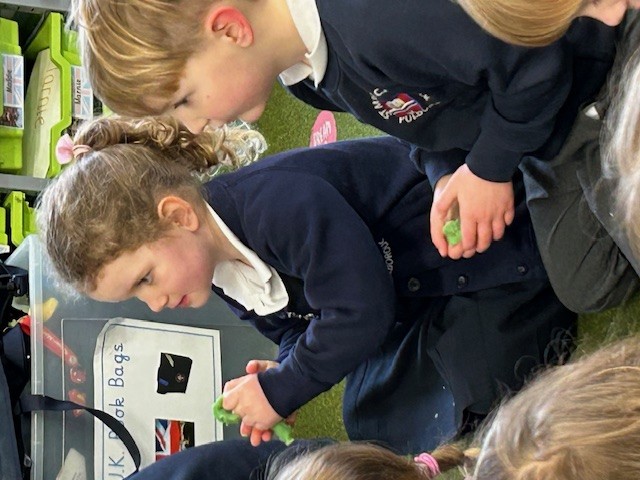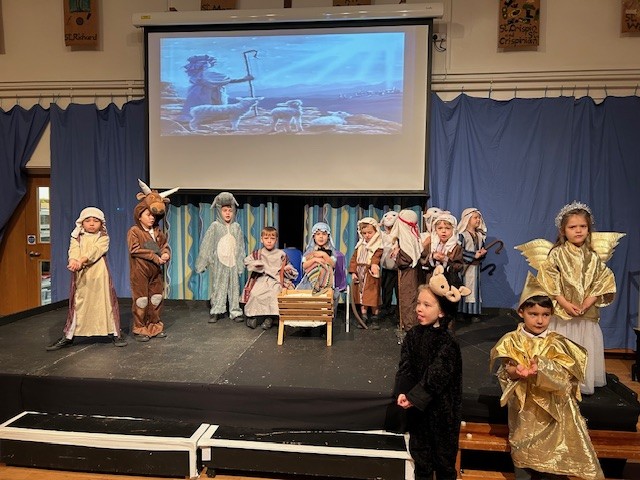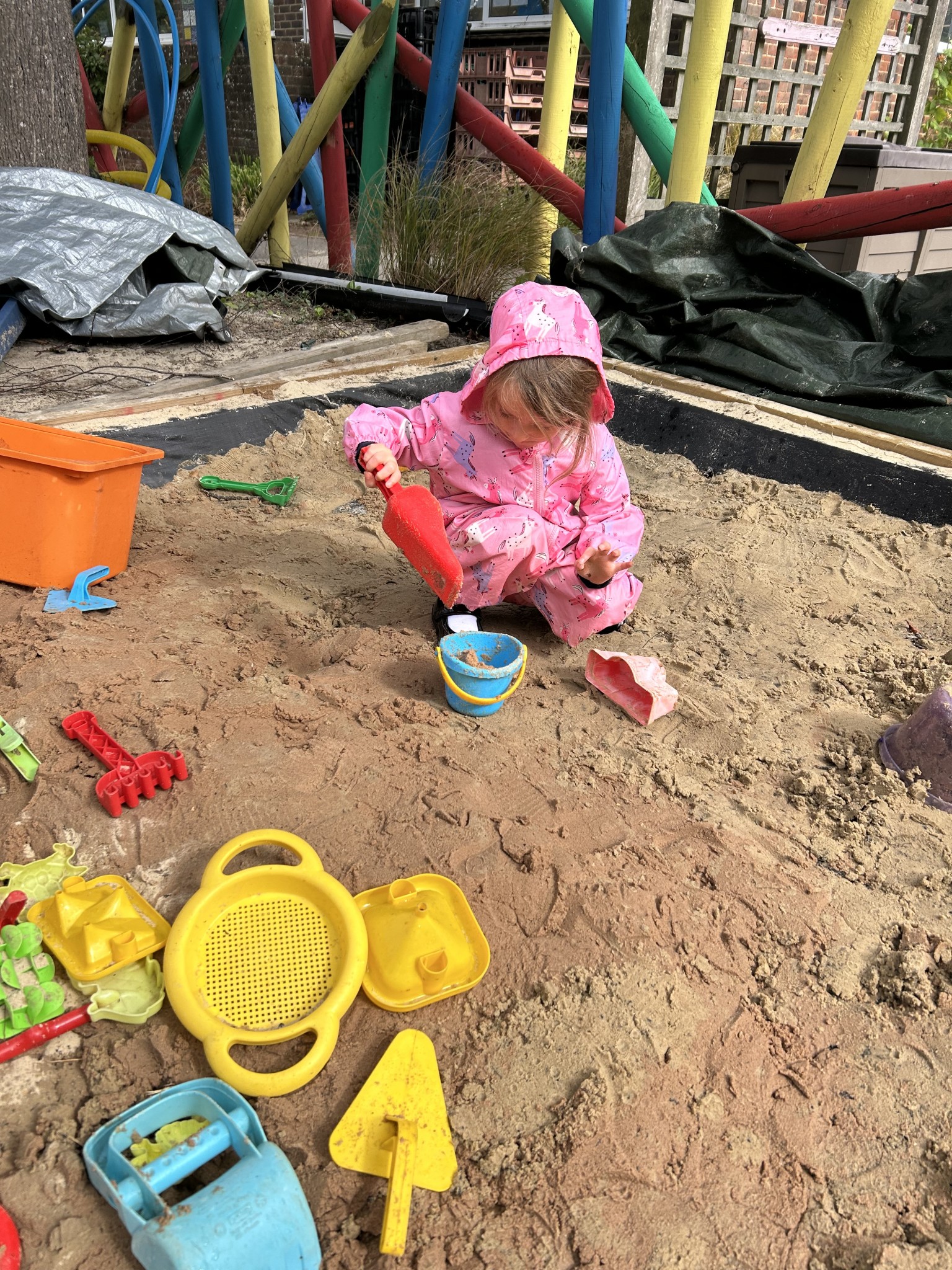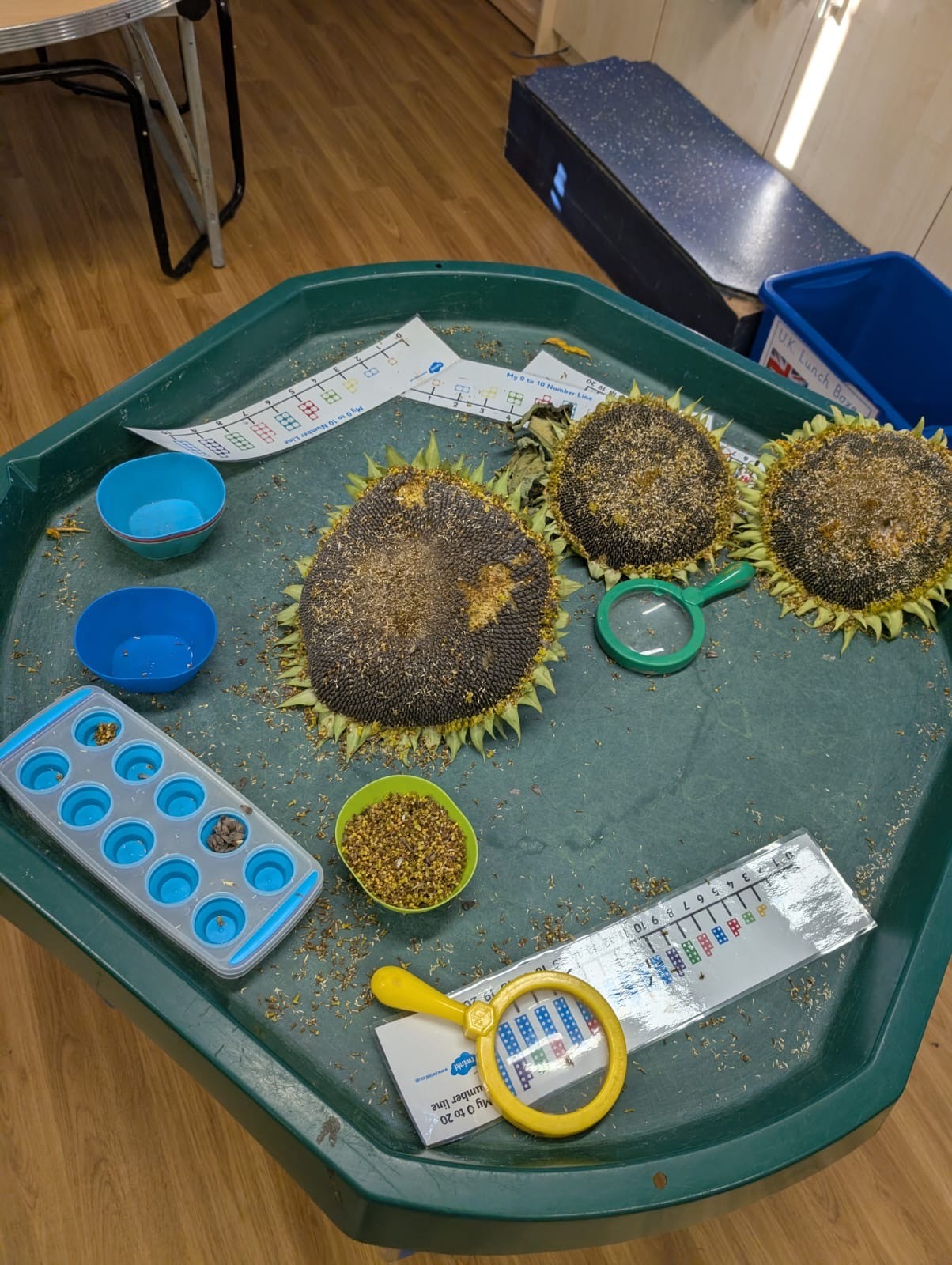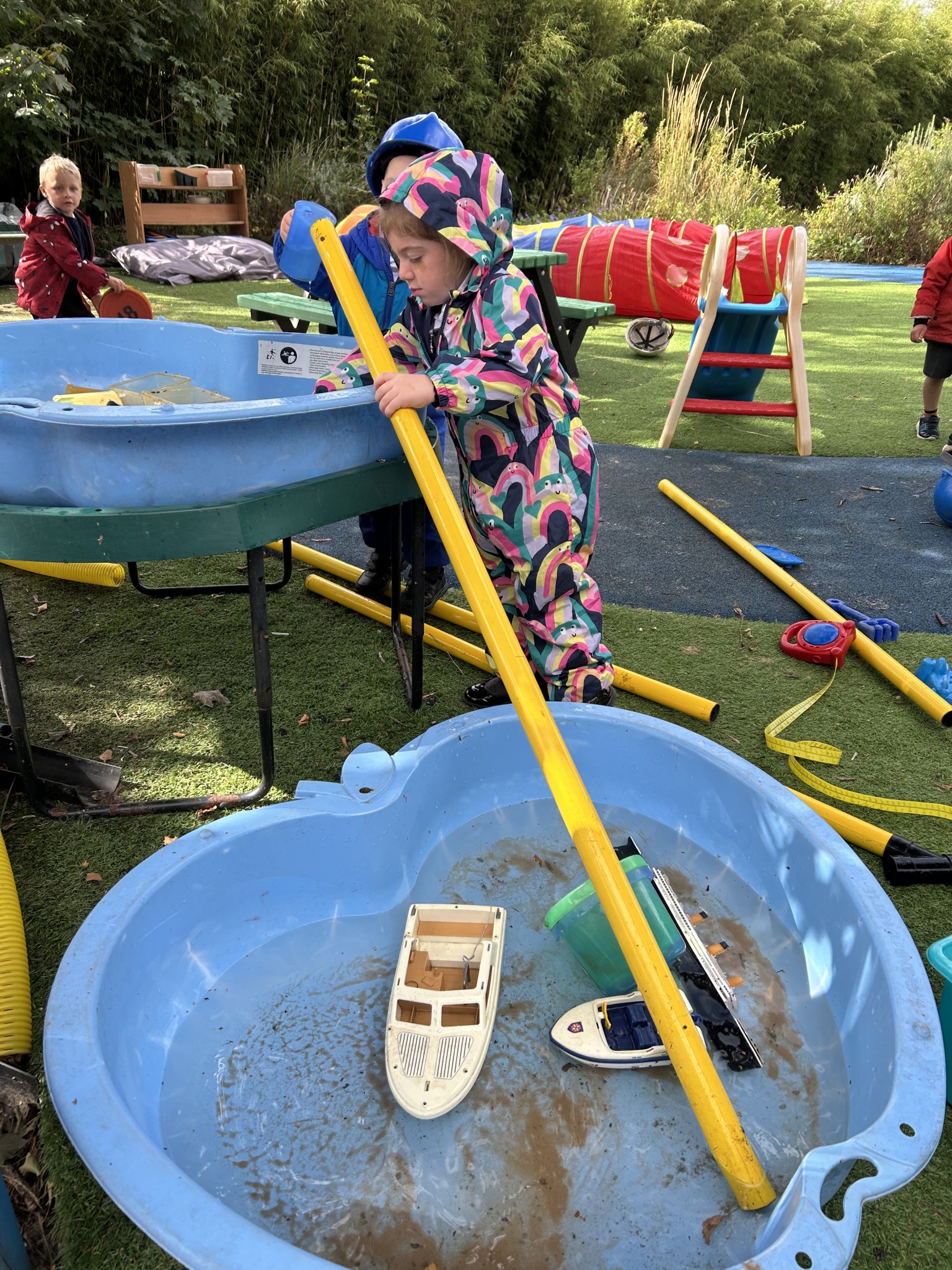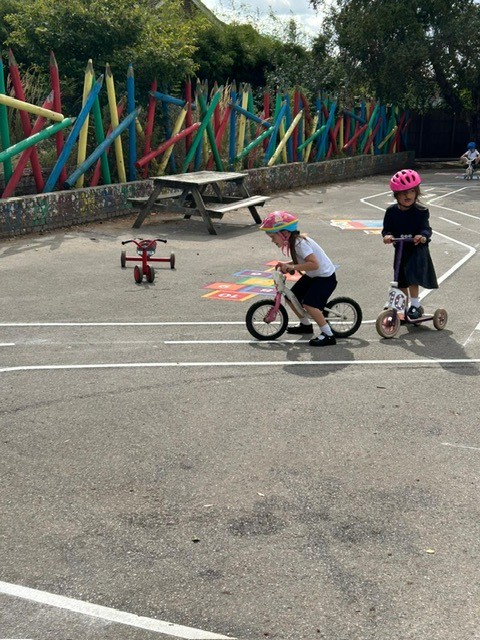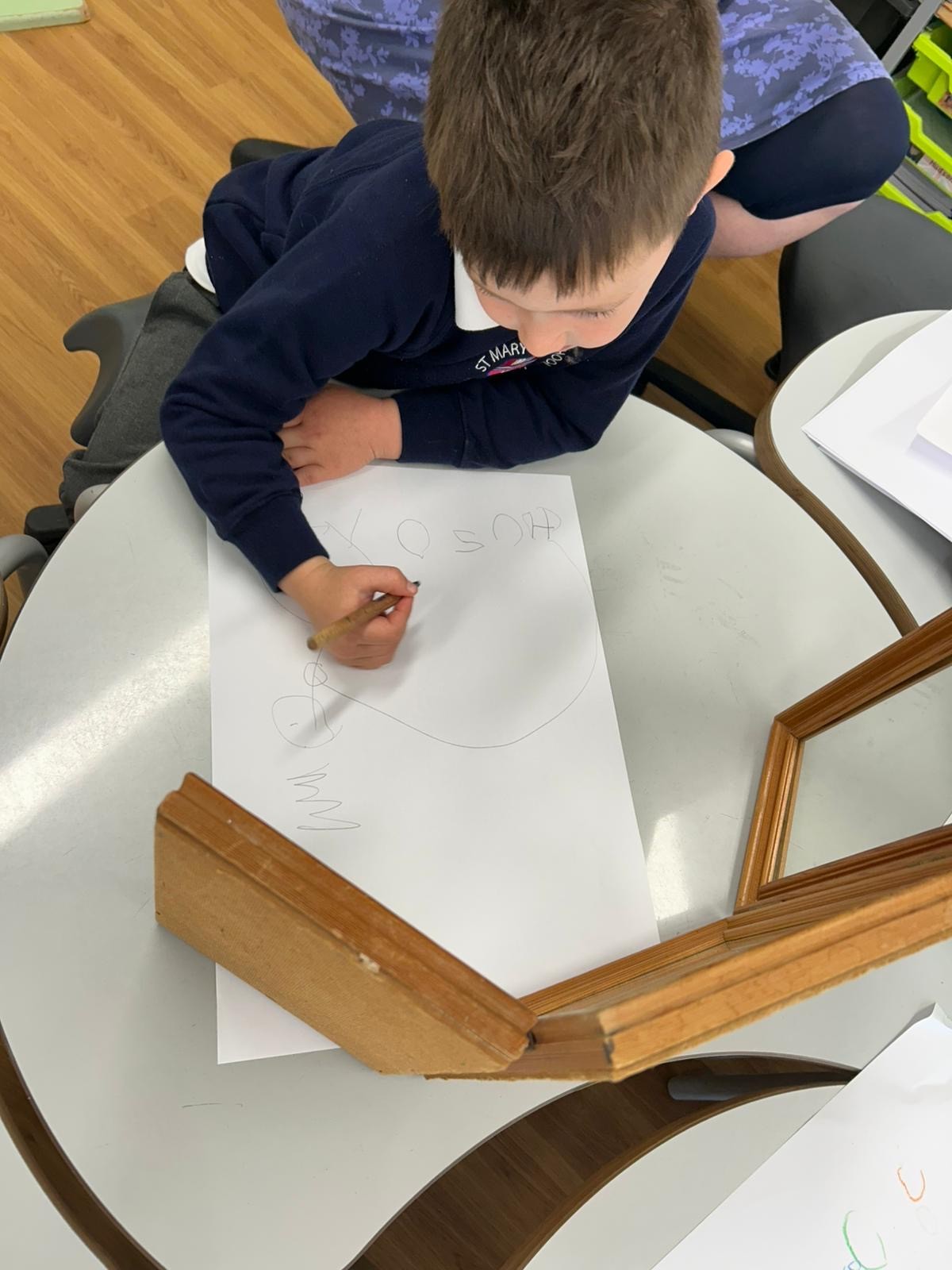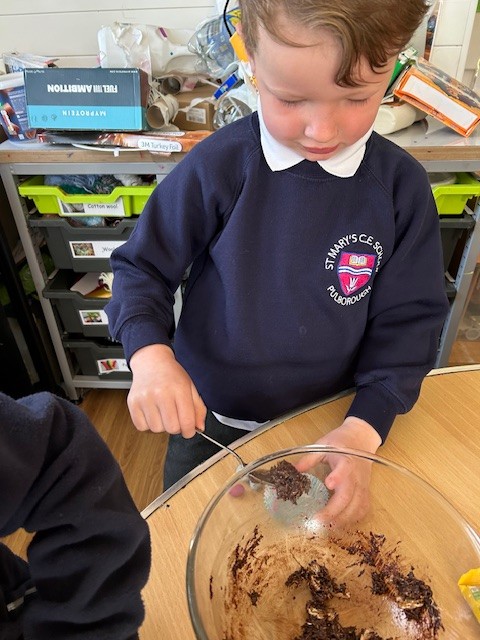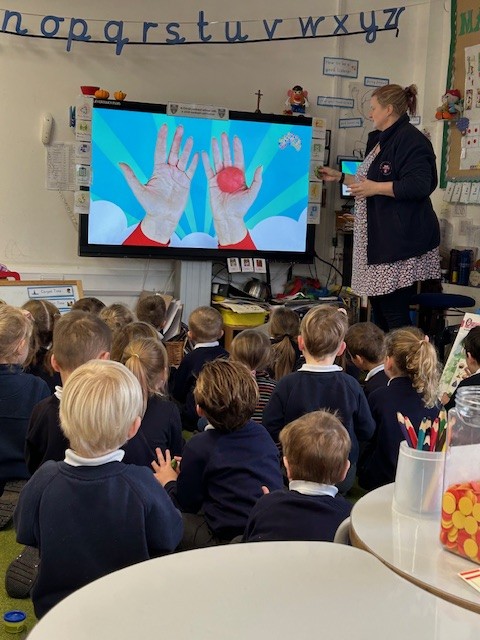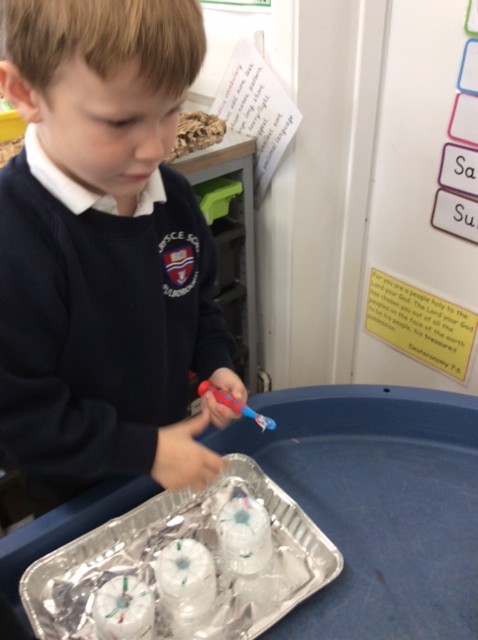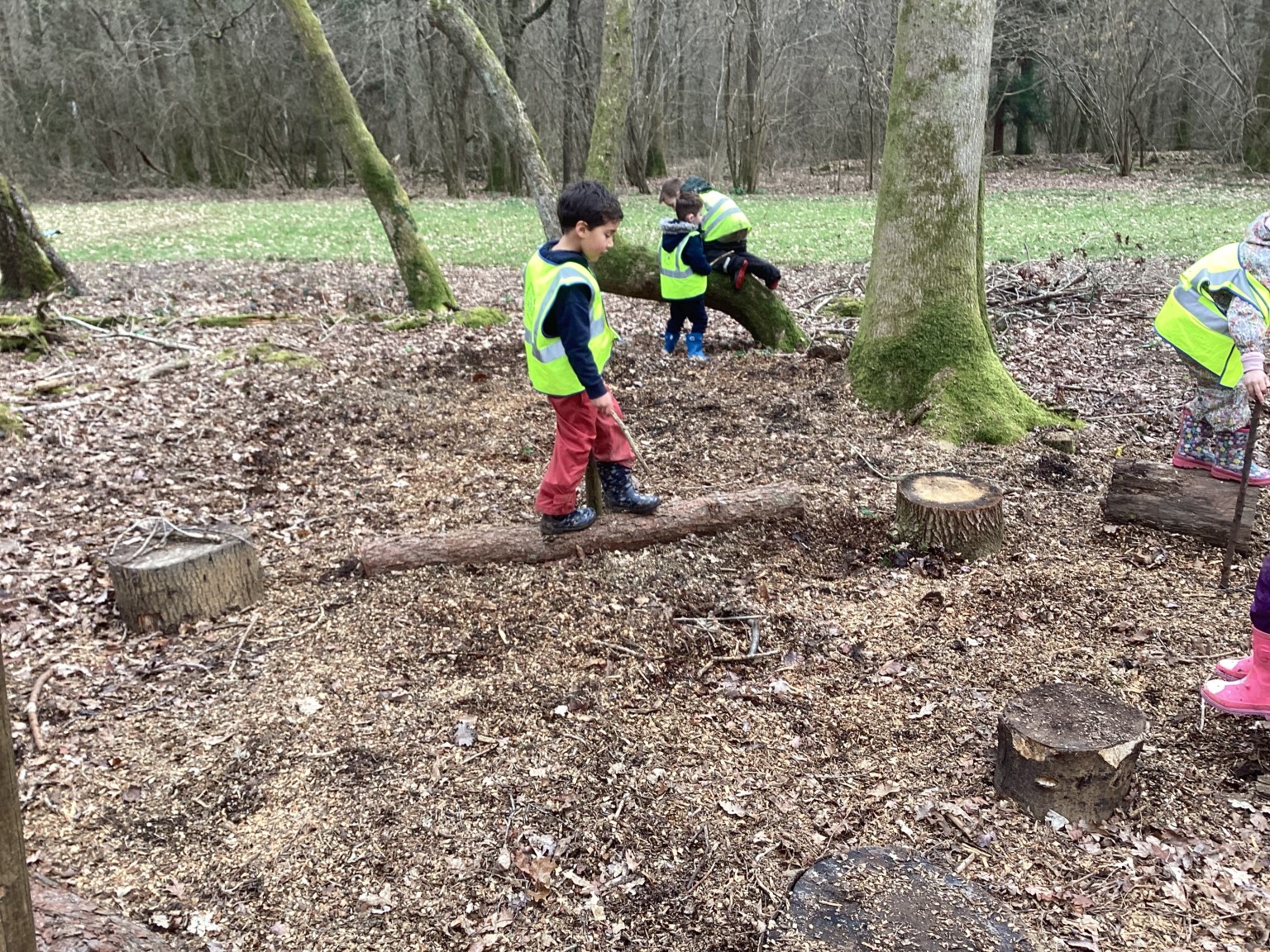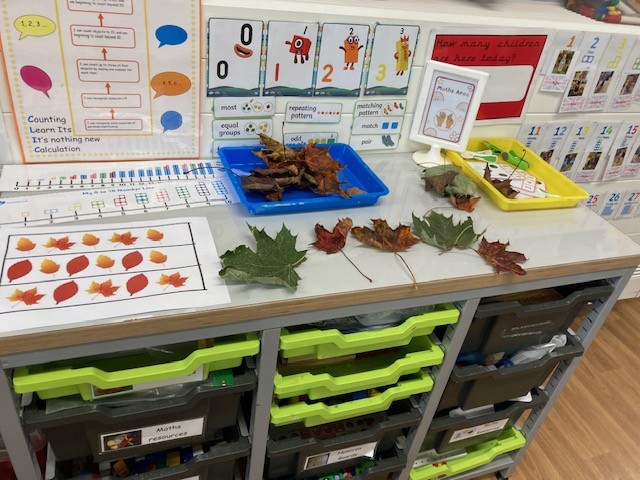In the St Mary's CofE (Aided) EYFS setting we provide a safe, nurturing and stimulating environment which supports the growth of independence, resilience, collaboration and reflects the learning for life values. At St Mary's we place a high value on vocabulary and experiences which prepare children for the rest of their school journey.
Community is a high priority at St Mary's; we value and enable close relationships with children and families to ensure the well-being of the children in our care both at home and at school, enabling them to achieve the highest possible outcomes for individuals.
Implementation
We firmly believe that the experience we offer and provide at St Mary's in the Early Years is vital to ensure a strong start to a child’s education and EYFS is the bedrock where the foundational knowledge and skills begin in readiness for KS1, 2 and beyond.
We support each child’s learning through numerous ways of teaching and supporting, including direct teaching, high quality provision in both the classroom and outside, enhancing the provision and responding to the children’s learning in the moment through quality questioning and adult engagement.
Children choose from a wide range of stimulating and relevant activities which engage them fully in their learning and allow them to effectively demonstrate the characteristics of effective learning. The classrooms and the outdoor areas are highly stimulating and organised to enable children to make progress in all areas of learning whilst developing their own ideas.
Our curriculum is designed to create high levels of engagement, through quality teaching and learning. This provision supports children in achieving their full potential through developmentally appropriate activities and experiences.
Vocabulary plays a fundamental role in the development of our children’s reading and speaking. We focus on introducing new vocabulary weekly and providing opportunities to use it. We choose high quality texts not only in our teaching, but also in our reading for pleasure.
We have developed a curriculum which looks forward to learning covered further up the school specifically in Key Stage 1, and further in Key Stage 2, ensuring that children have been given the knowledge and skills to build upon. We provide this through hands-on experiences such as visits to local areas, interacting with living things and we teach specific, related vocabulary to allow them to fully access the learning opportunities later in their education.
Pupils' progress is tracked and monitored using Evidence Me. This tool is used to collect evidence to build the holistic picture of every child through pictures, observations and communications with parents. This supports us in making accurate judgements on the children’s development.
Structure of the day
The best outcomes for children’s learning occur when a mixture of learning opportunities are provided during the school day, such as child-initiated play, guided play actively supported by adults and adult focus-led learning.
We place a strong emphasis on ‘In the Moment Planning’ in order to enhance children’s interests in addition to the above. This approach is shown to:
- develop children’s confidence, being part of a group, learning to take turns and share fairly,
- give opportunities to become strong and independent from a base of loving and secure relationships with parents and key adults
- provide chances to develop imagination in recreating roles and guided experiences
- enhance communication with others as they investigate or solve problems
- offer exploration opportunities, develop and represent learning experiences that help them to make sense of the world.
- allow children a safe space to take risks, make and learn from mistakes
- develop resilience through giving time for practice, building up their own ideas, concepts and skills.
- being flexible, adaptable and spontaneous.
- listening to children’s ideas and interests
- positive reinforcement and enthusiasm about indoor/outdoor play. Adults are confident and knowledgeable about the benefits of learning in the outdoor area
- supporting and encouraging children to take risks and explore; and helping children make sense of the world around them
- adopting a problem-solving and investigational approach where possible
- providing opportunities for meaningful conversations between groups of children, and between adults and children.
- understanding that children develop and learn in different ways and at different rates, as well as understanding that development in all areas of learning is equally important and inter-connected.
- observing and being reflective on children’s spontaneous play; monitoring their development in all areas of the curriculum, and using this to inform future planning.
Communication and Language
Communication and Language plays a huge part in the development of children as part of the 3 Prime areas. St Mary's understands the priority within this and therefore we have a dedicated speech and language teaching assistant to work with the children most in need of support. In addition, paired partner talk is carefully planned to allow children to access and learn language from peers. Staff also use contingent talk within the setting to model play and develop language and critical thinking, which will continue to be developed over the next year.
Parental Involvement and Community
We offer a range of opportunities to engage parents with our school community such as:
- Offering Class Dojo logins to encourage parents to upload photos and observations of home learning.
- Hold workshops to support parents in areas such as Reading/Phonics and Maths.
We know that bringing home and school together is vital in giving our children the best opportunities in life!

